
Expedition learning
In July I will be involved in teaching an “expedition learning” course for a week. It will be all about coastal protection in the Kiel region, so two colleagues and I went on a private expedition to scout out what can be explored where. This is a very picture-heavy post, be warned! It’s more a note-to-self to document the different beaches we looked at than something I expect anyone else to be interested in.
We started out in Friedrichsort, where there were nice breaking waves to be observed. My part of the course, you might have guessed it, will be on observing waves…
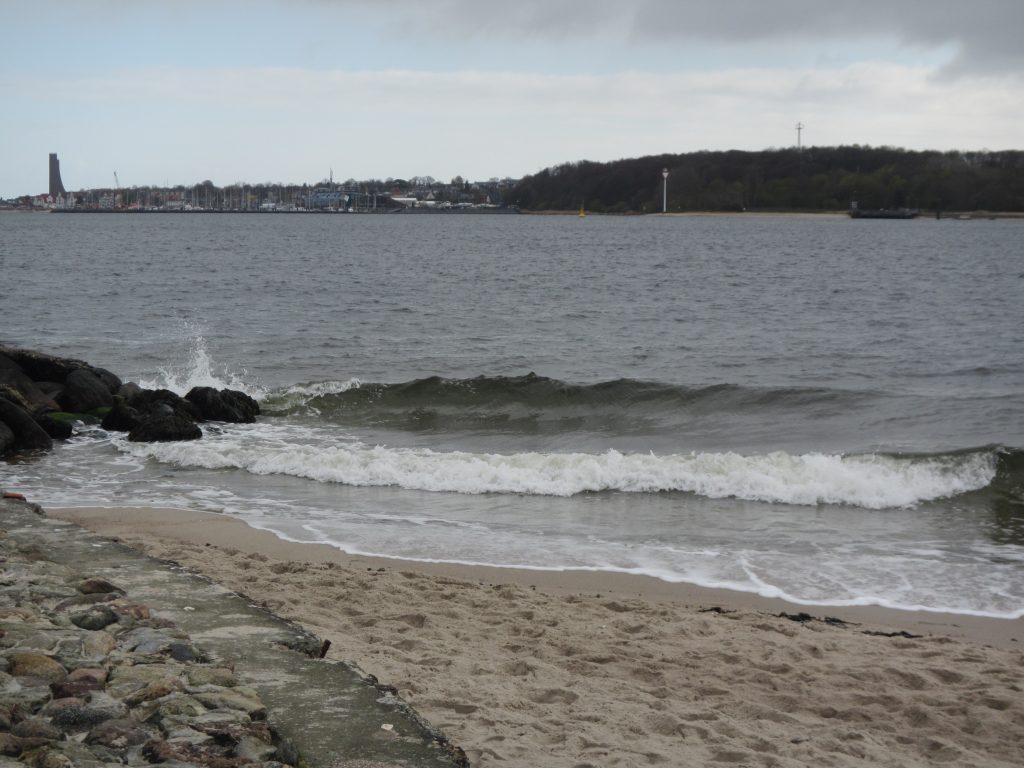
In Friedrichsort there is a lighthouse on a small headland, and there are sand banks around it that make for very interesting wave fields, like for example below, where the sand bank almost seems to filter out some wavelengths.
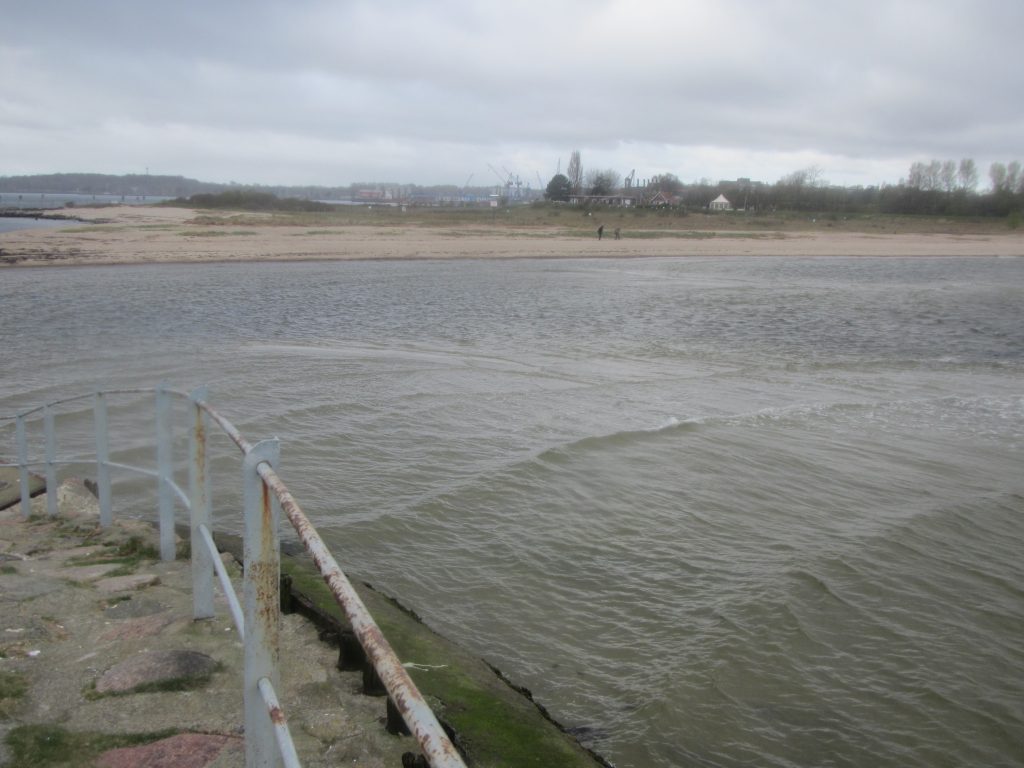
Looking seaward over the sandbank, we see breaking waves over the shallow part, and waves being bent around the sand bank.
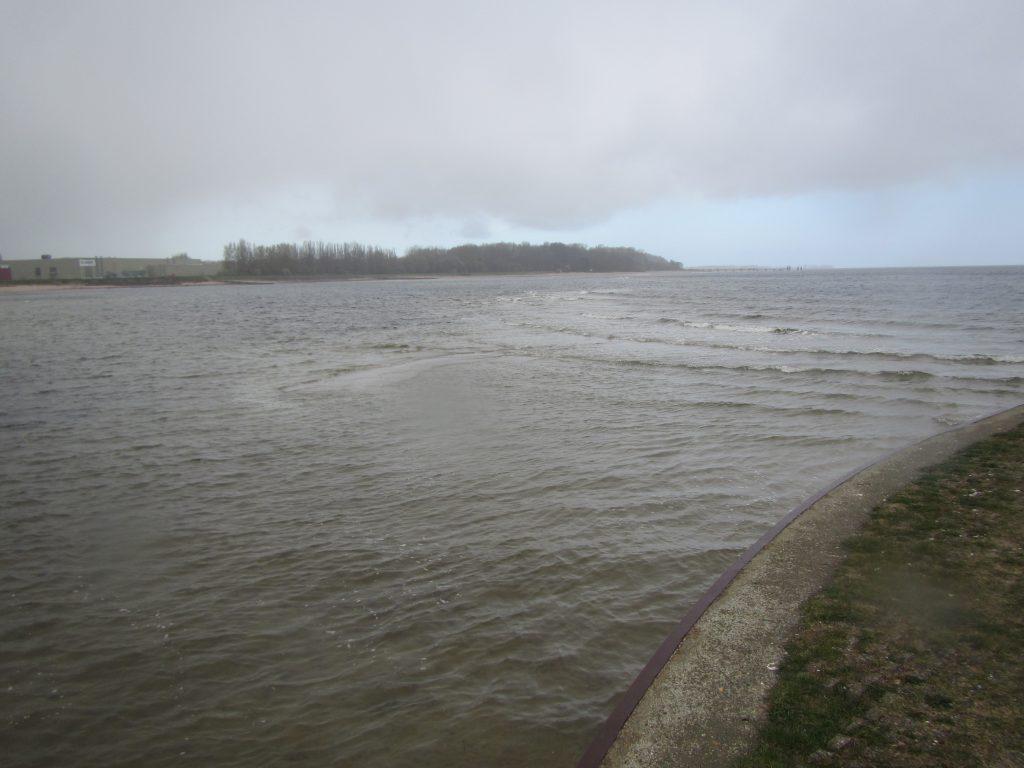
A similar thing could be seen on a tiny headland: Can you see how one and the same wave crest gets wrapped around the headland?
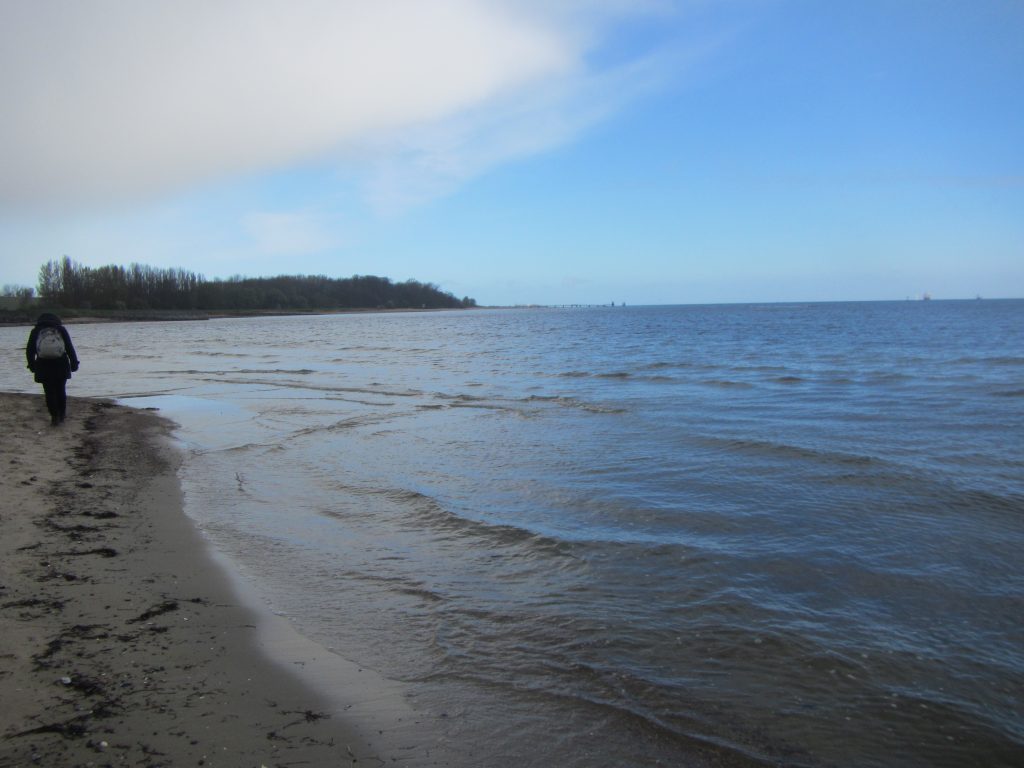
See? So cool!
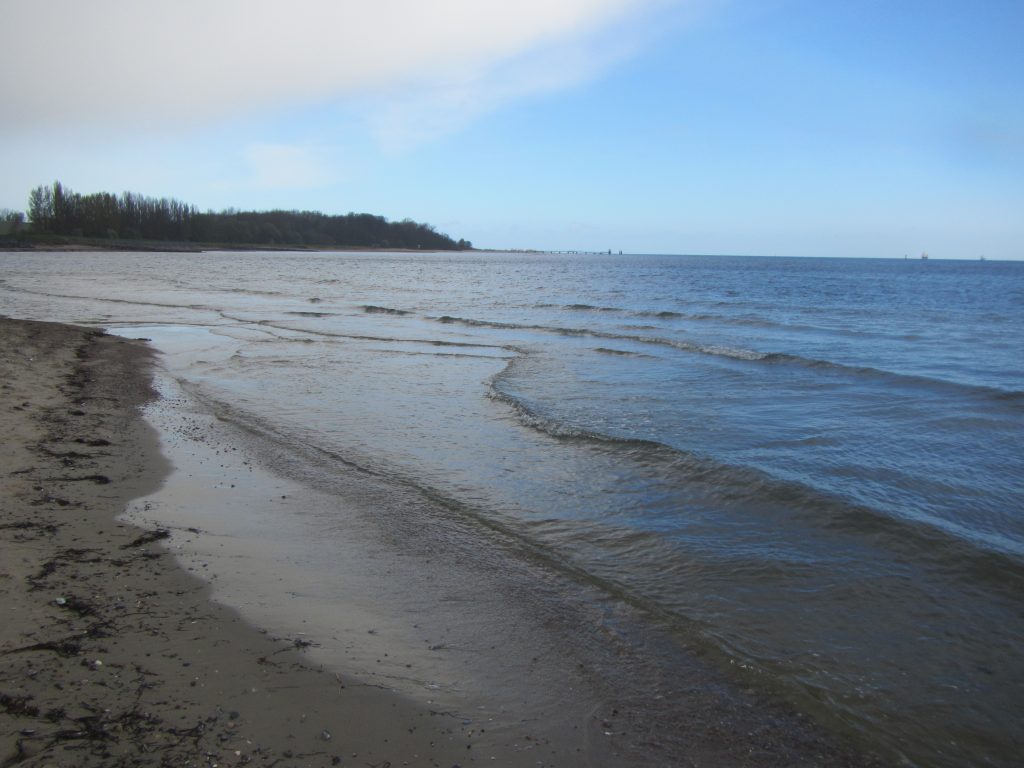
Btw, you might have noticed the weather changing a lot over the last couple of pictures. It’s April, I guess… But a couple of raindrops here and there make nice tracers for the time since the last wave washing up over the beach ;-)
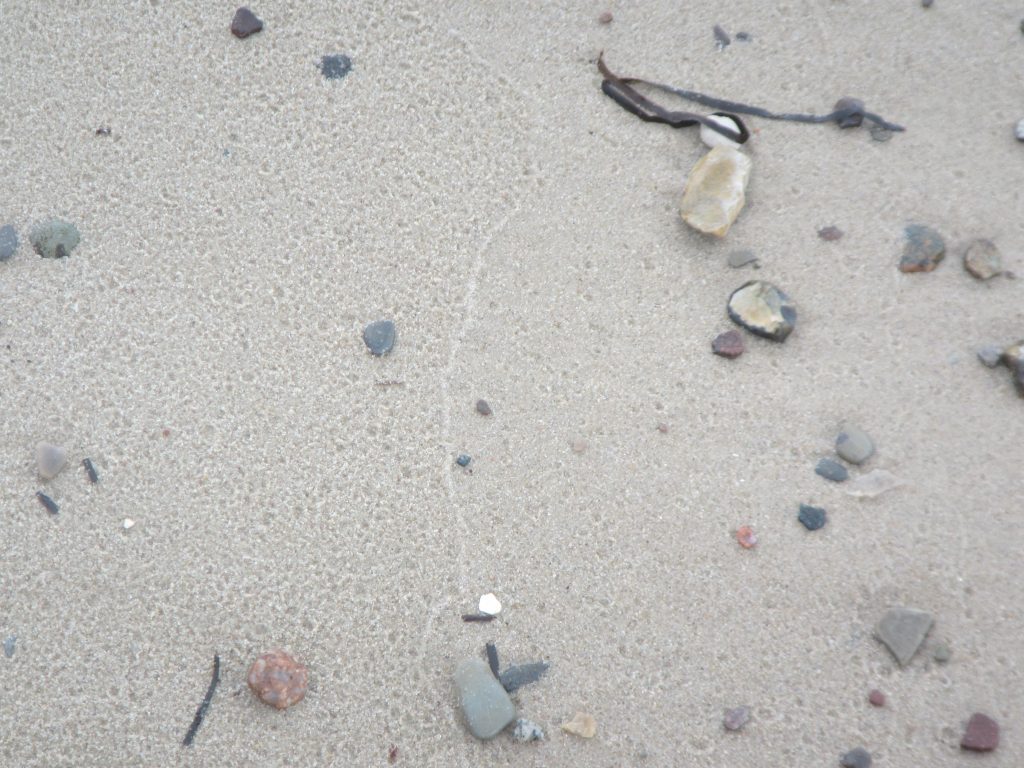
Always fascinating: When you can see wave-less spots that are shielded from the wind, and then local wind waves and others that are travelling in from further away. And breaking on a sand bank…
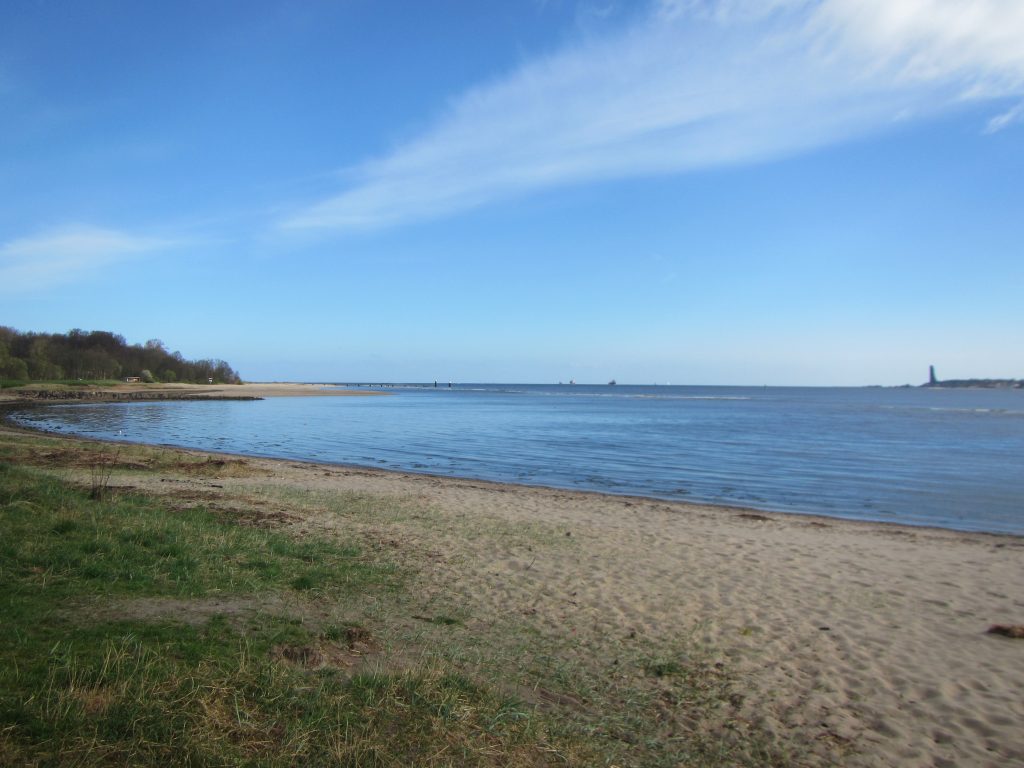
Also, did you see how nice the weather was for a couple of minutes every now and then? ;-)
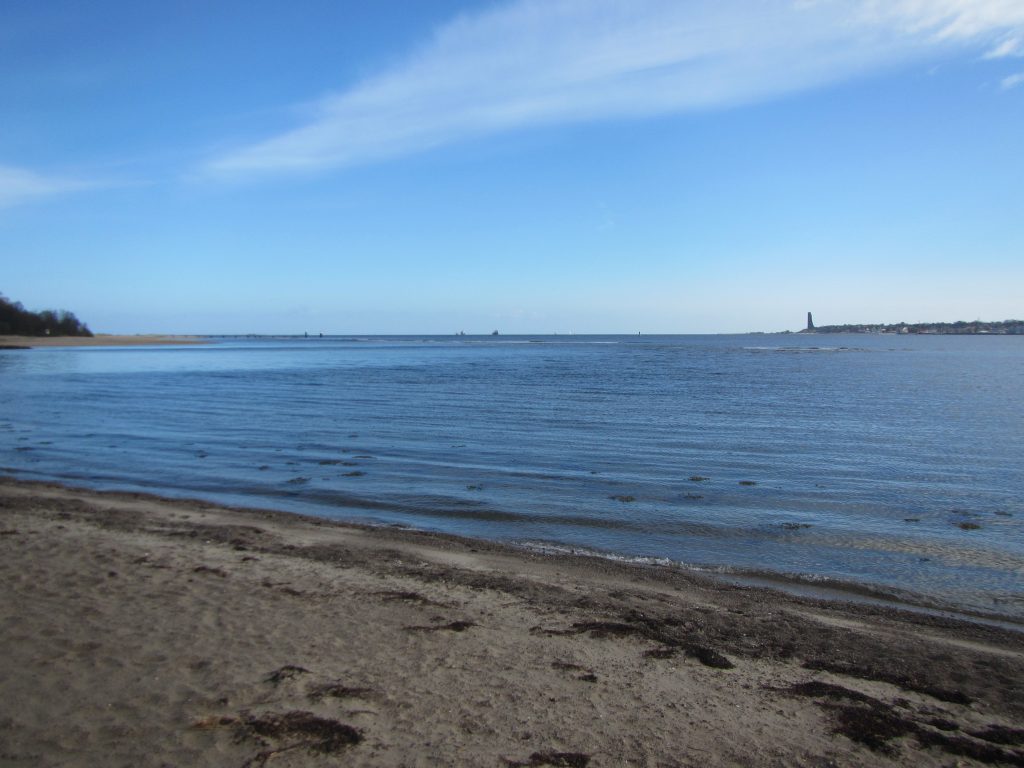
And here is a close-up of the waves breaking on the sand bank.
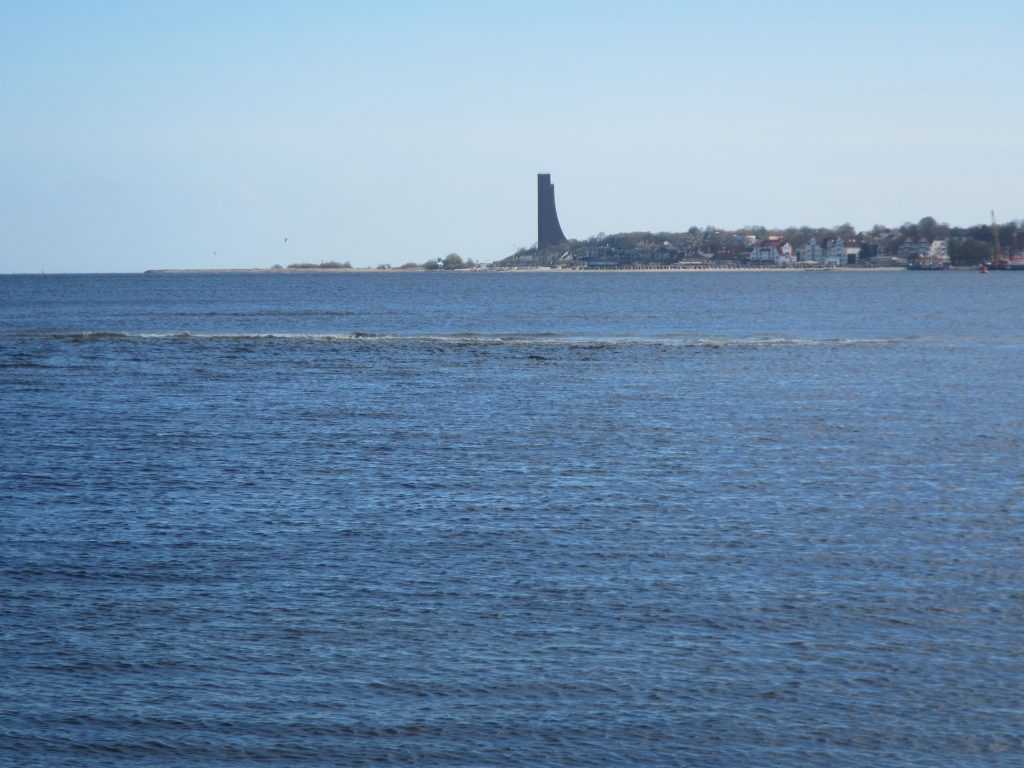
Oh, and looking back to where we came from: That’s the lighthouse on it’s headland right there! And my two colleagues figuring out what’s wrong with the GPS they brought. Their part of the course will focus on more geological things than mine…
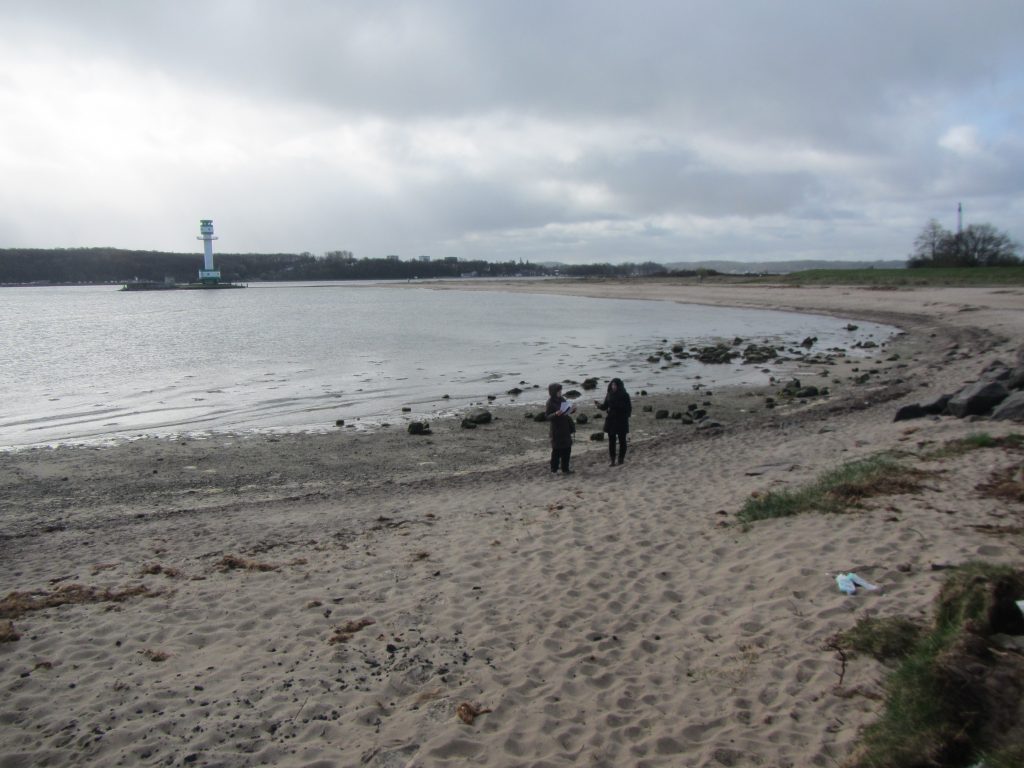
But I really like this view!
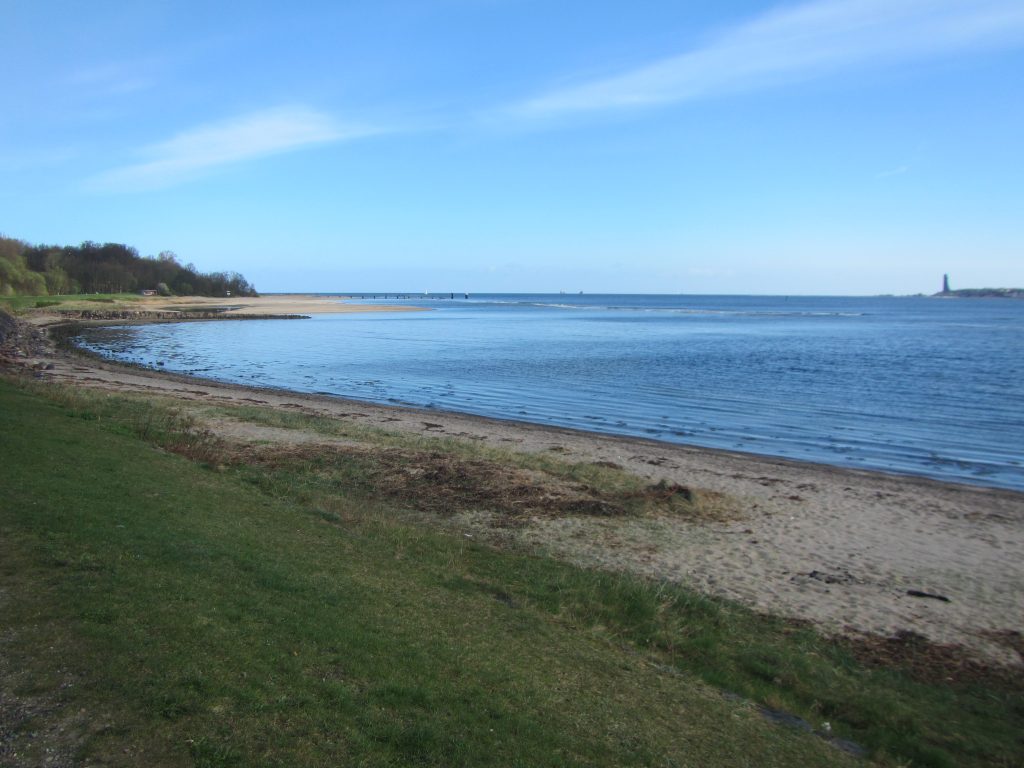
See how nice and regular the waves are that reach the beach even though the local wind field is really messy (as you see a little further offshore) and the waves have gone over the sandbank?
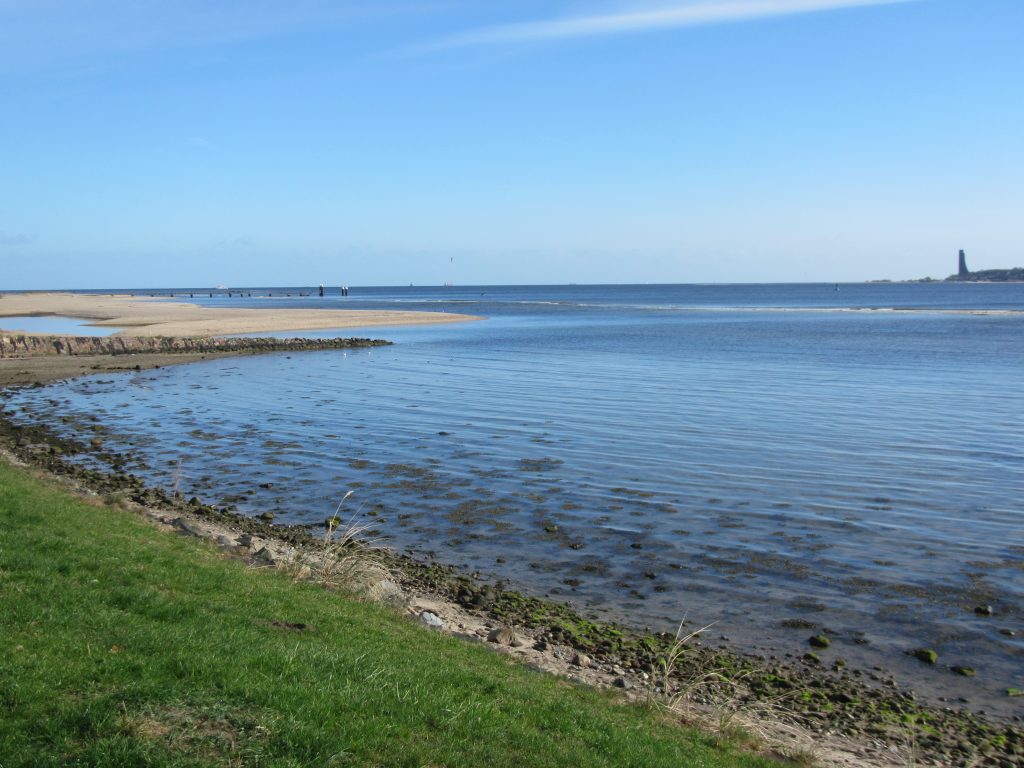
Oh, and always one of my favourites: When nice and regular waves hit a stone and it sends off wave rings. Love it!
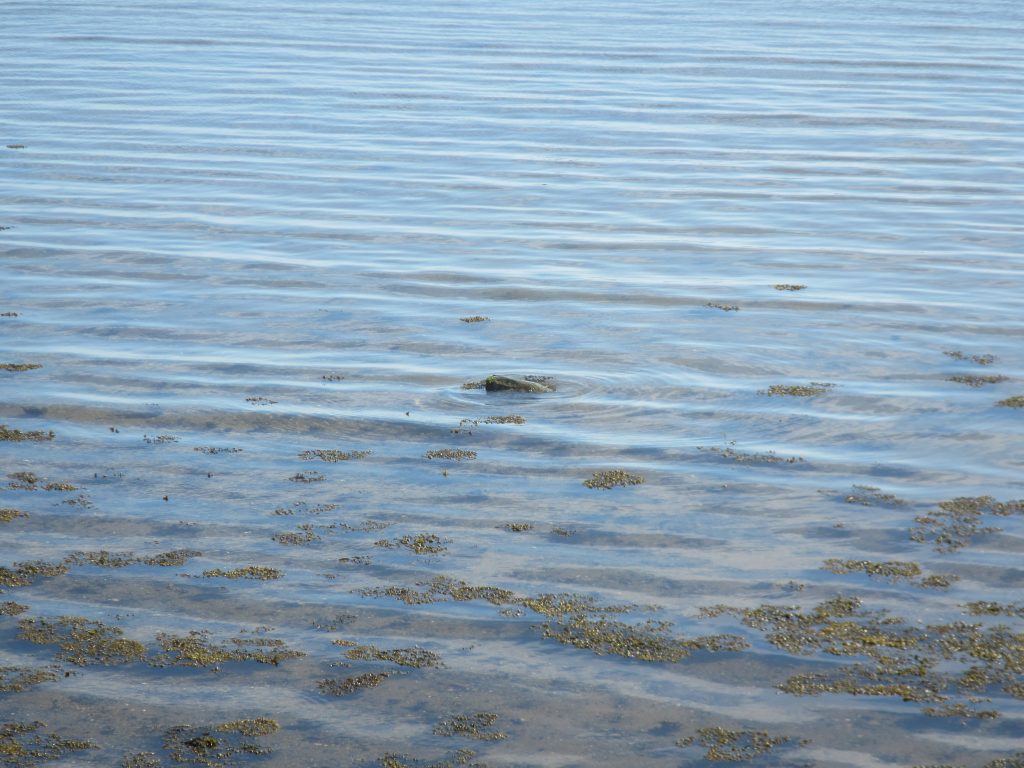
One more, because it’s so nice!
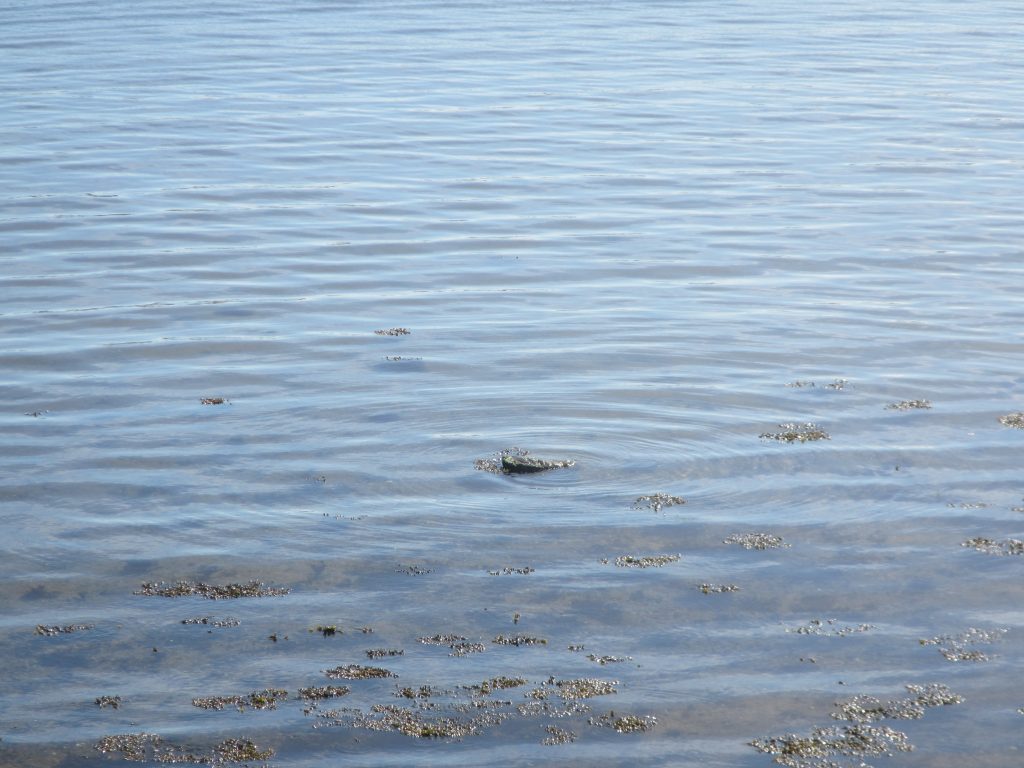
And here waves bending around a wave breaker thingy.
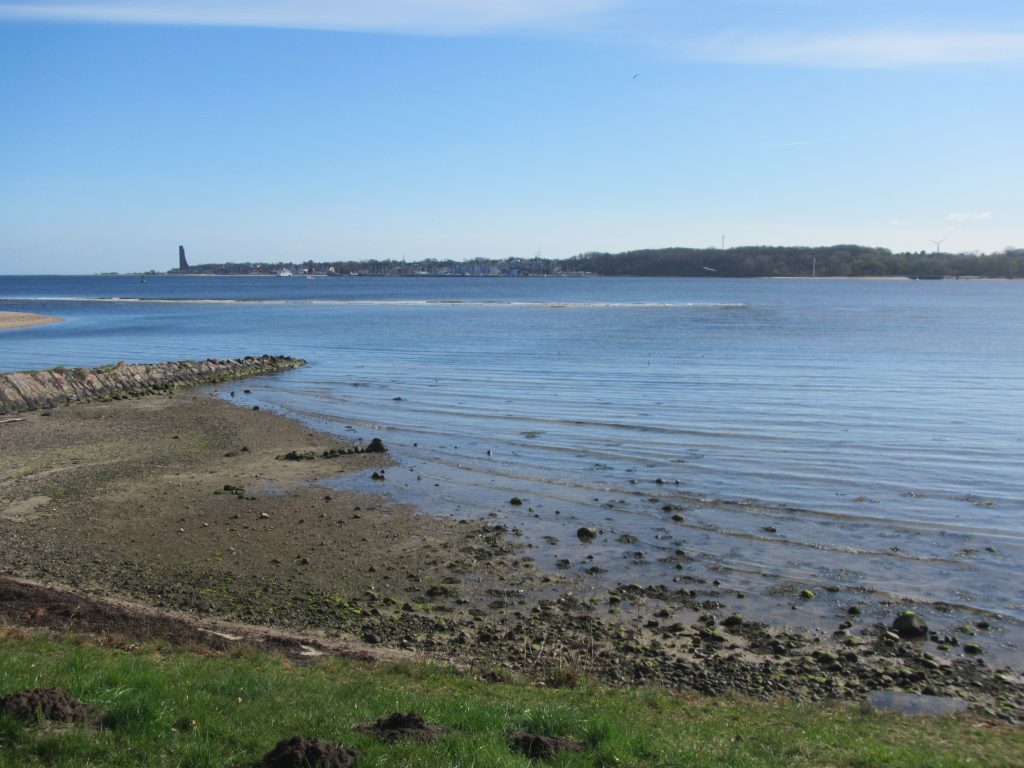
And this is a picture that really nicely shows how if you don’t have wind, you don’t have waves. The lagoon there is sheltered so well that you can actually see the reflection of the bird sitting on the edge!
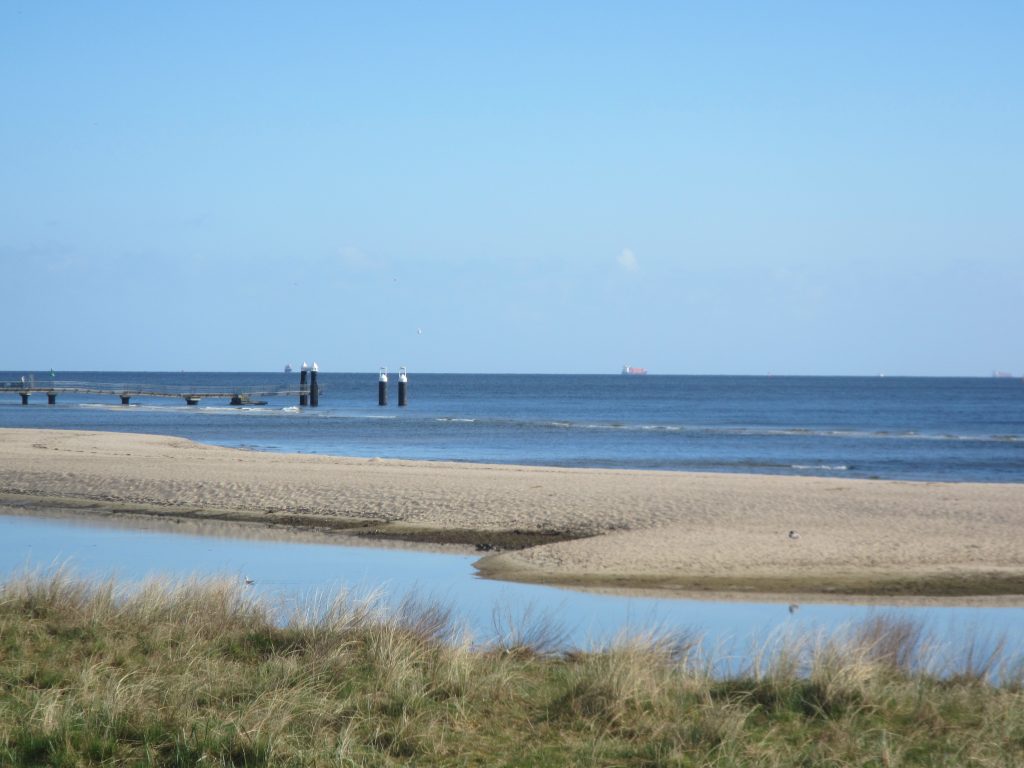
And here we have a very nice superposition of waves coming from different directions and with different wavelengths.
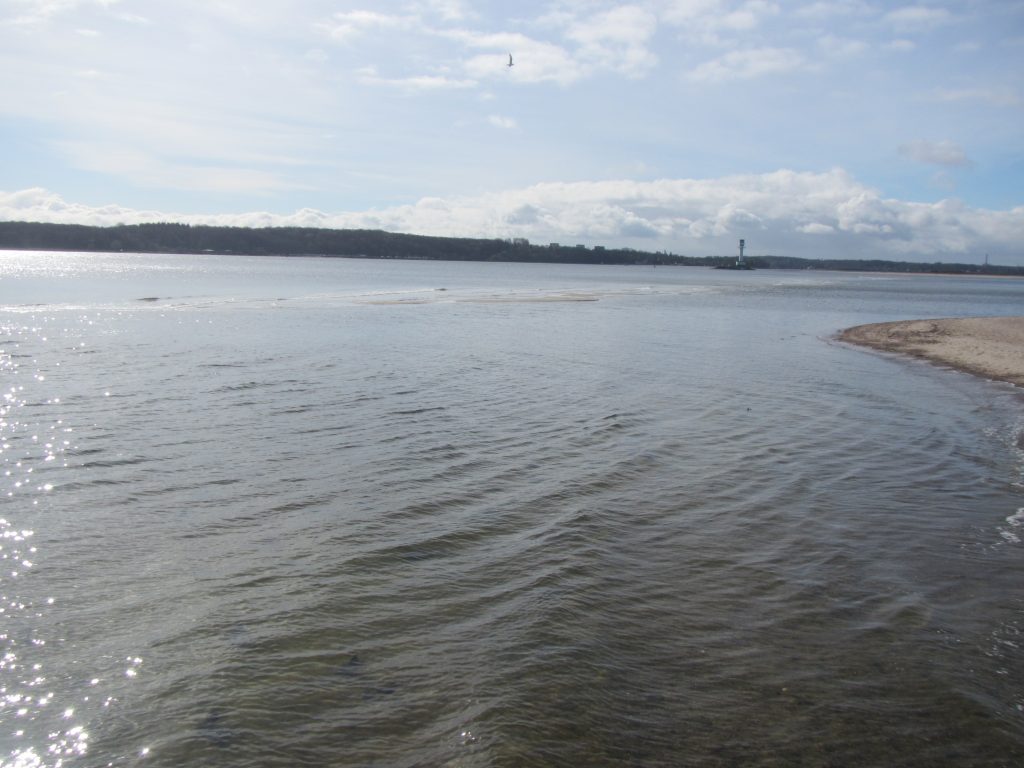
And waves coming through the “slit” between sandbanks and spreading as segments of a circle. Nice!
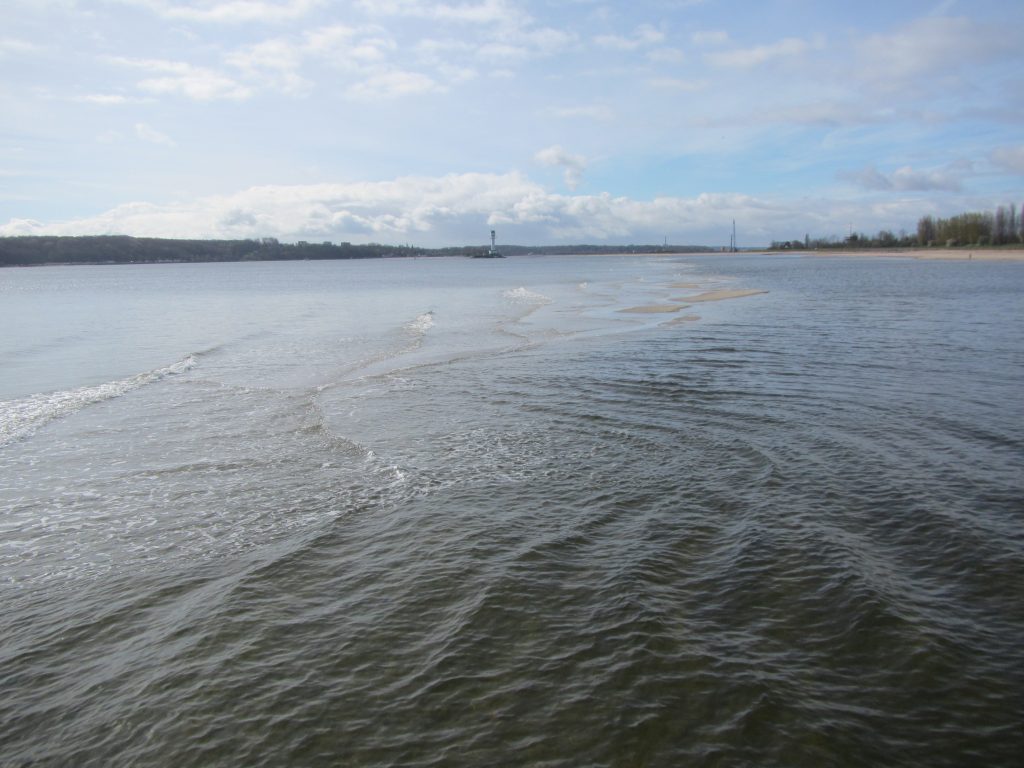
Oh, and more waves breaking on the sand bank.
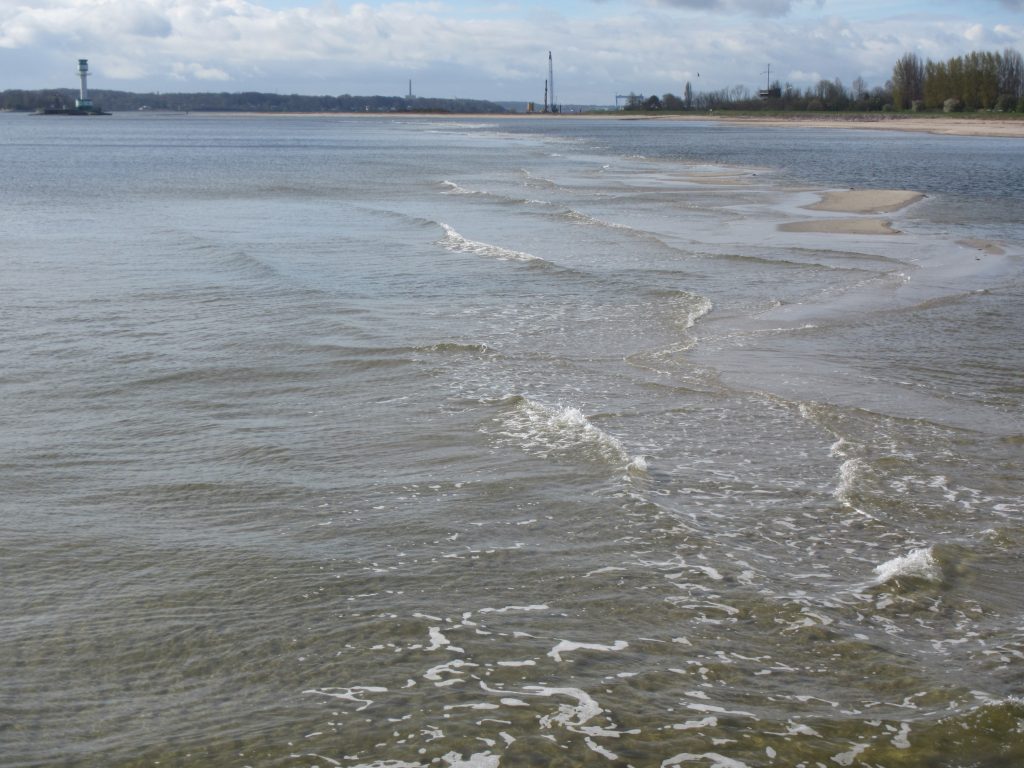
After a while, we reached Falckenstein:
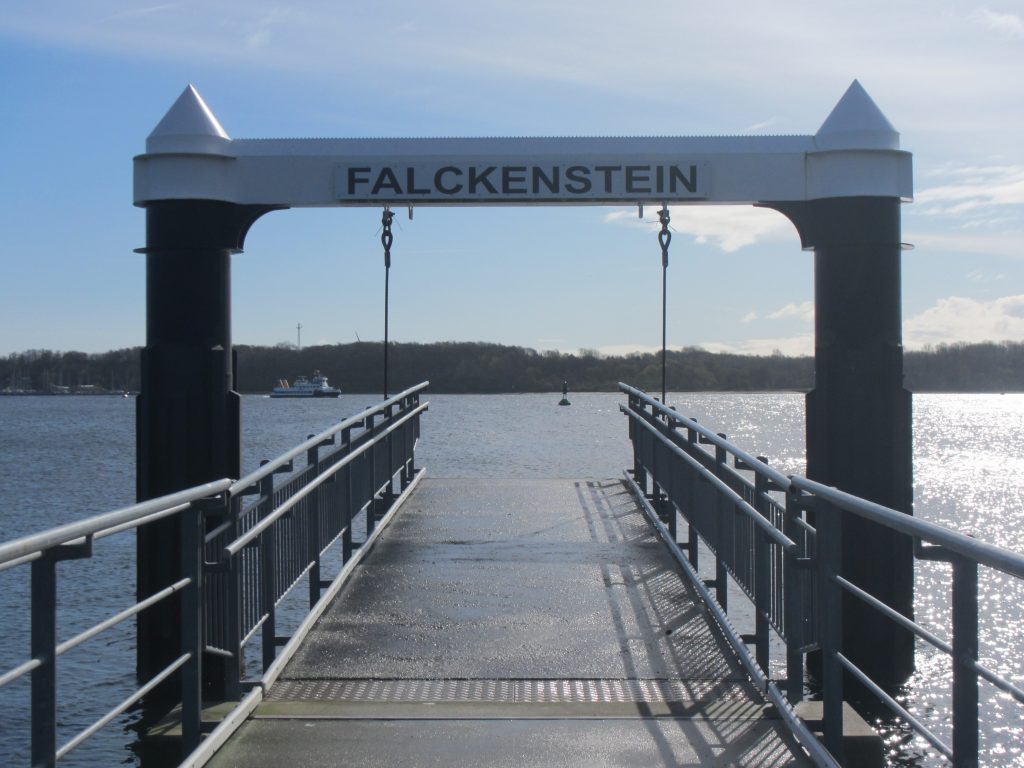
Not so far away from where we started out at that lighthouse over there:
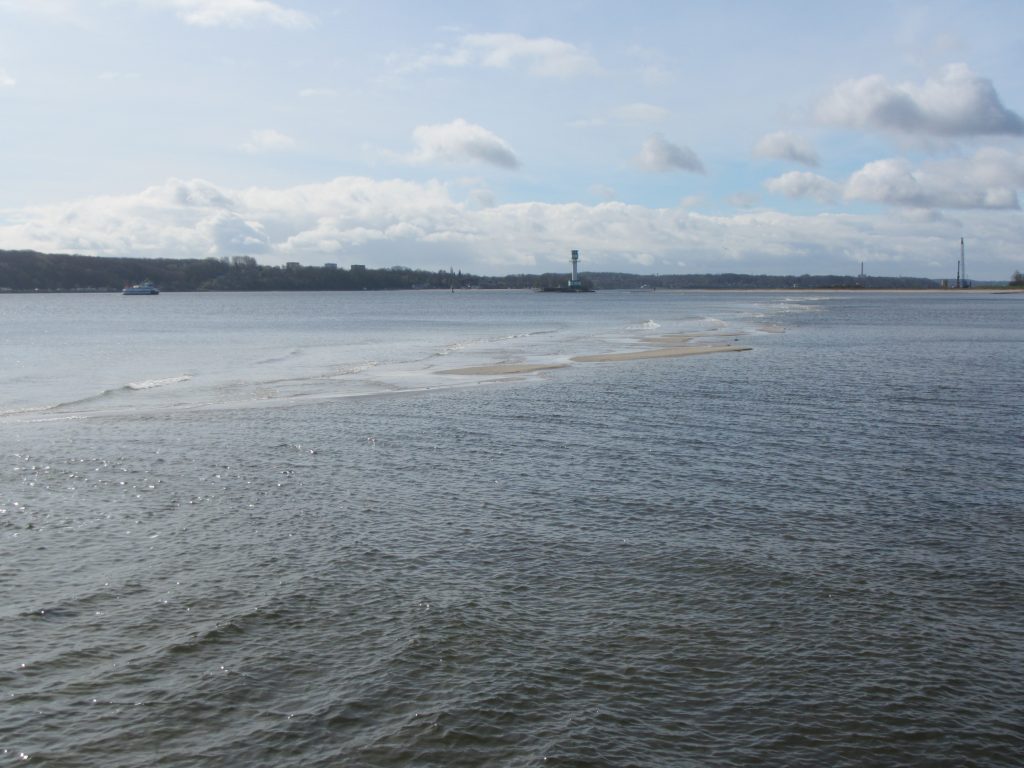
Another interesting superposition of wave fields.
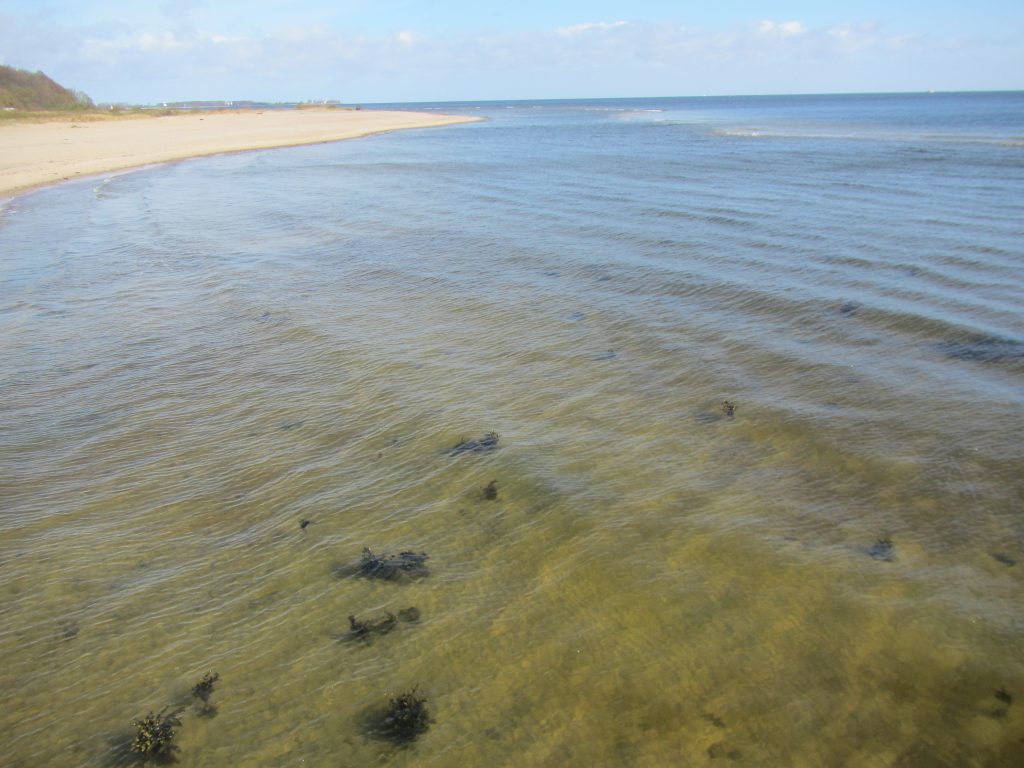
Oh, did I mention we did a lot of walking in the sand? About 20k steps. Well, I guess that isn’t even too bad…
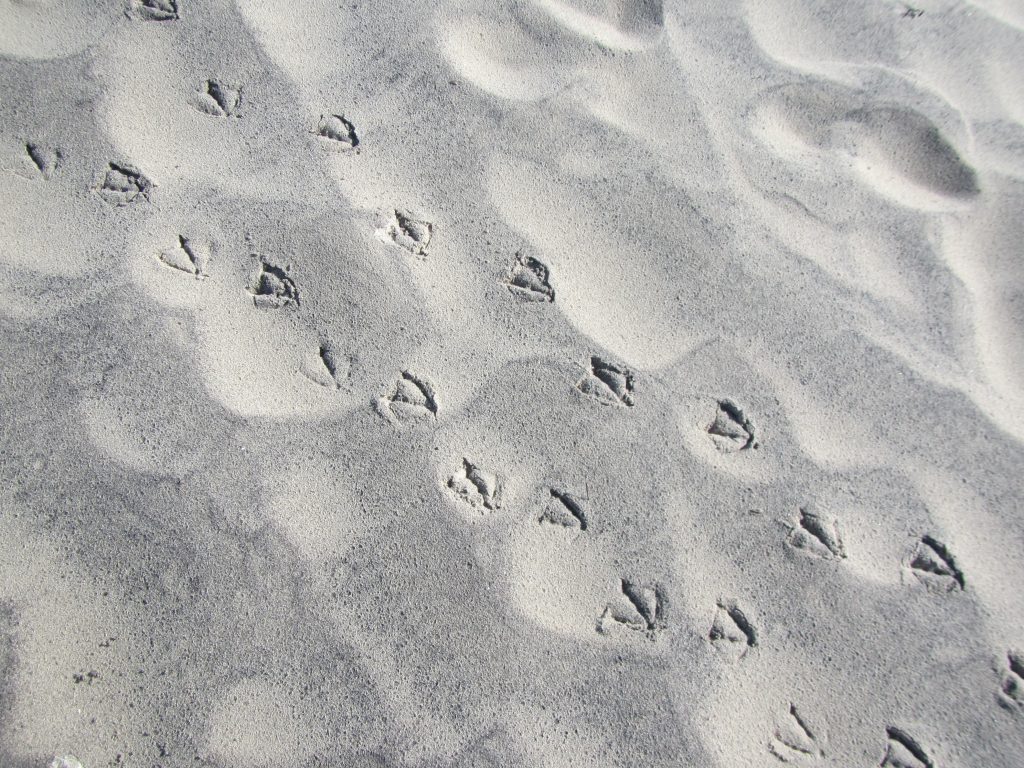
Below I really liked the criss-crossing of waves. It’s actually one wave crest crossing itself after being bend by the shallowing water.
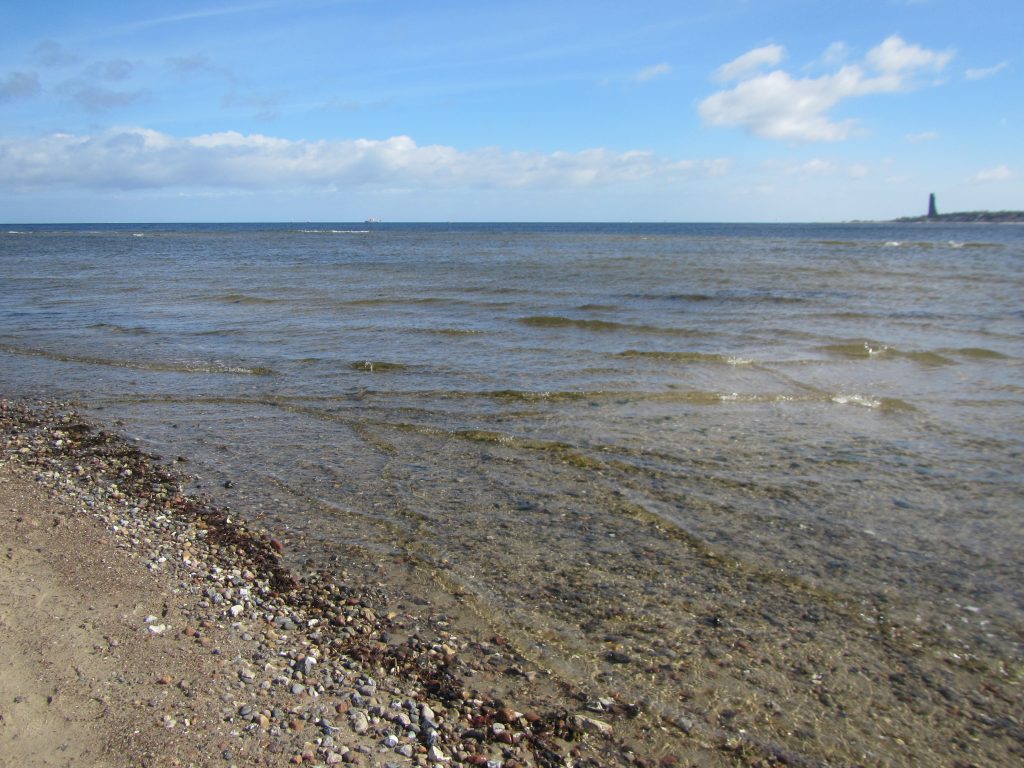
And those waves get deformed a lot, too!
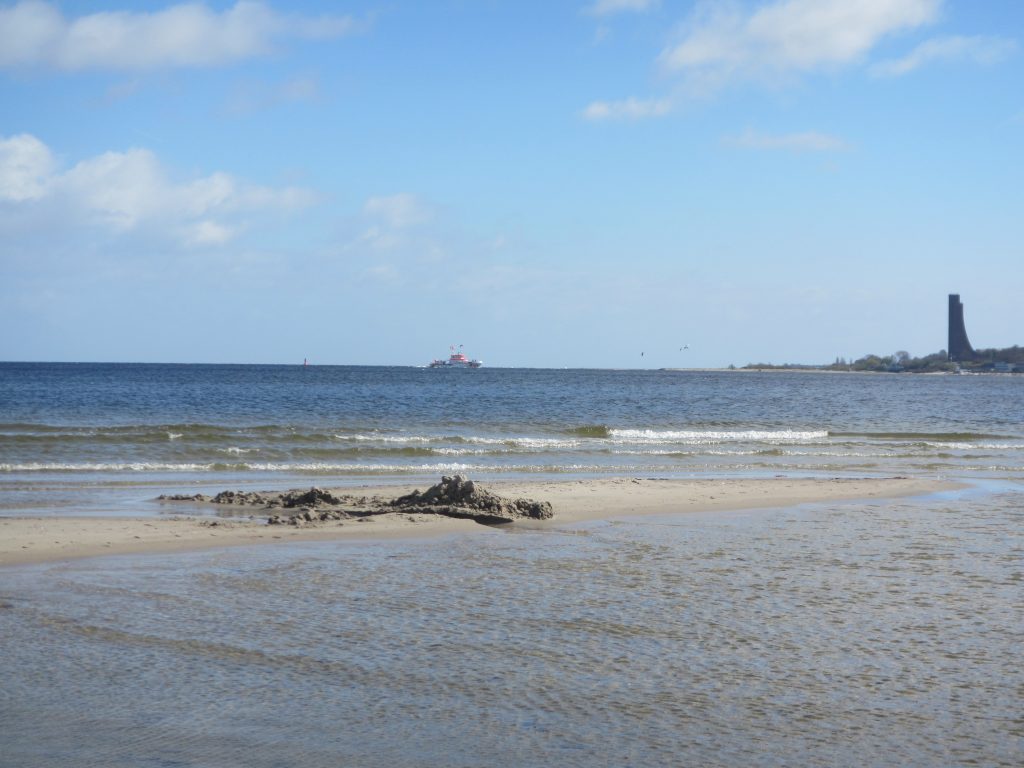
And here we knew that it was a matter of minutes until those rain showers would be where we were…
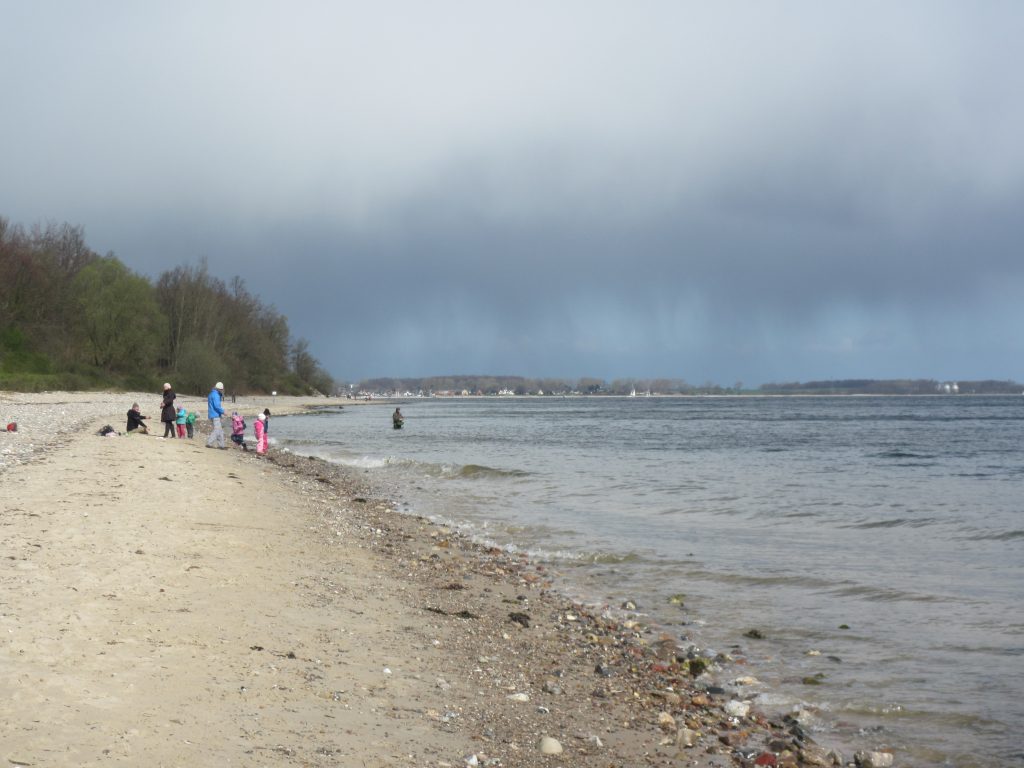
Luckily, this shower went over quickly, too.
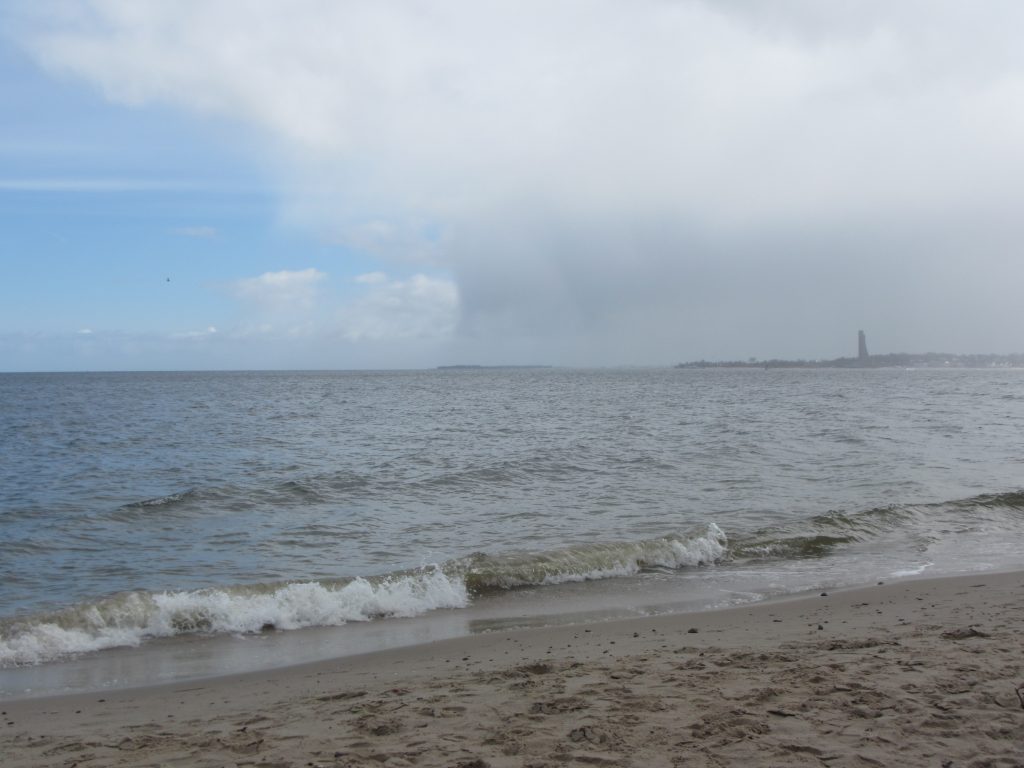
And this is the kind of stuff the other courses will be dealing with: Awesome formations in the coast!
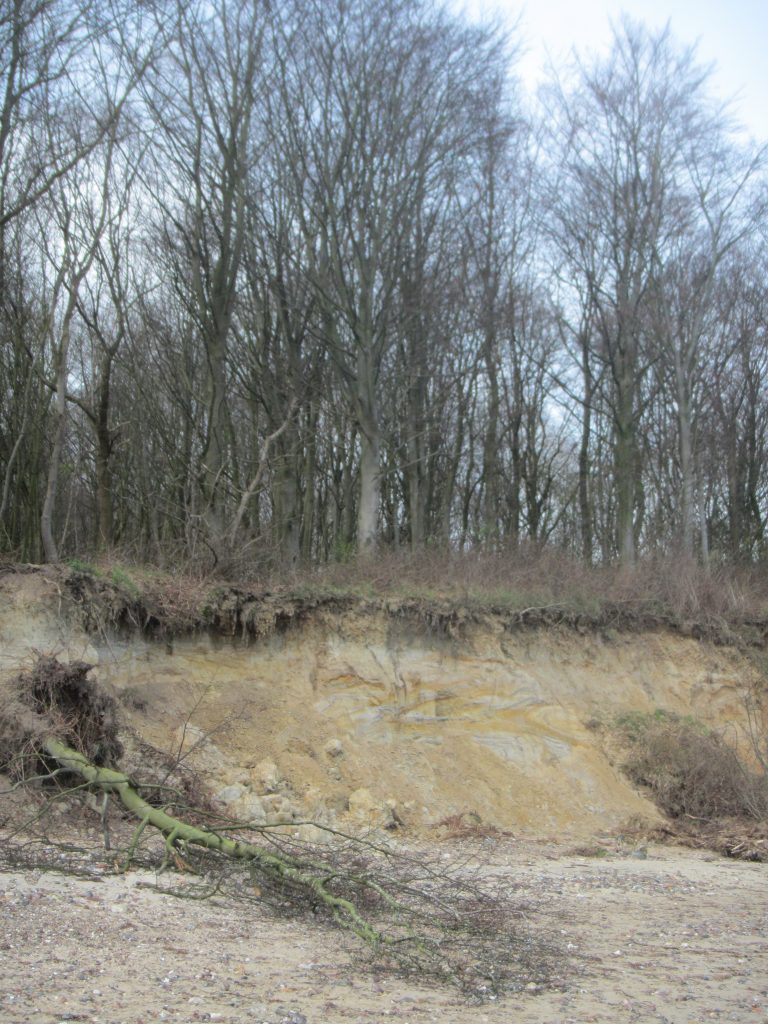
Ha, another weather front:
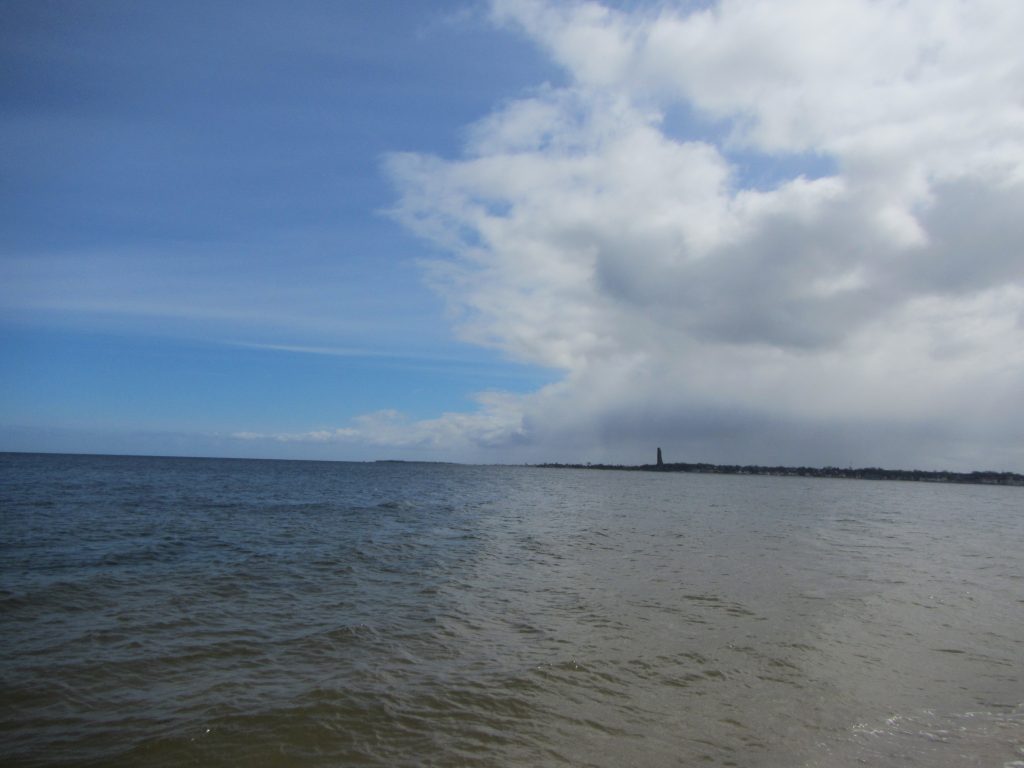
And this is my favourite geological feature: there are interesting features in the sand/soil/stone (however you call it?) and then erosion marks, clearly made by water, right below!
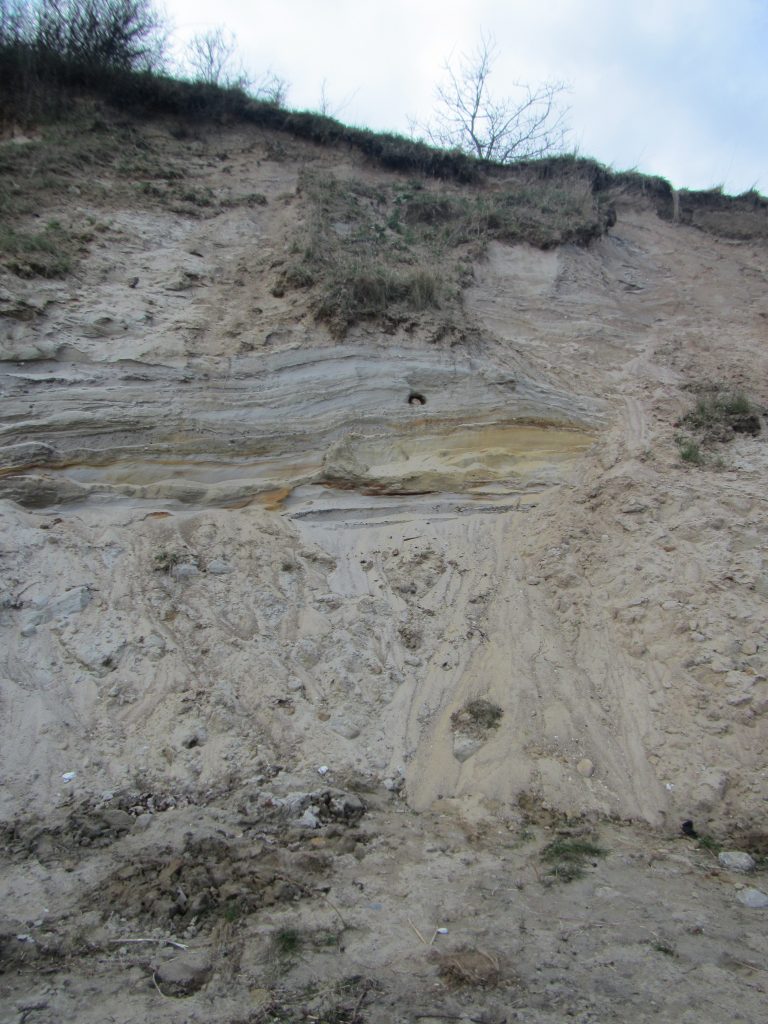
A little bit further along the coast, there are weird wave breakers and if the wind hadn’t died down, we would probably have been able to see more interesting waves than these…
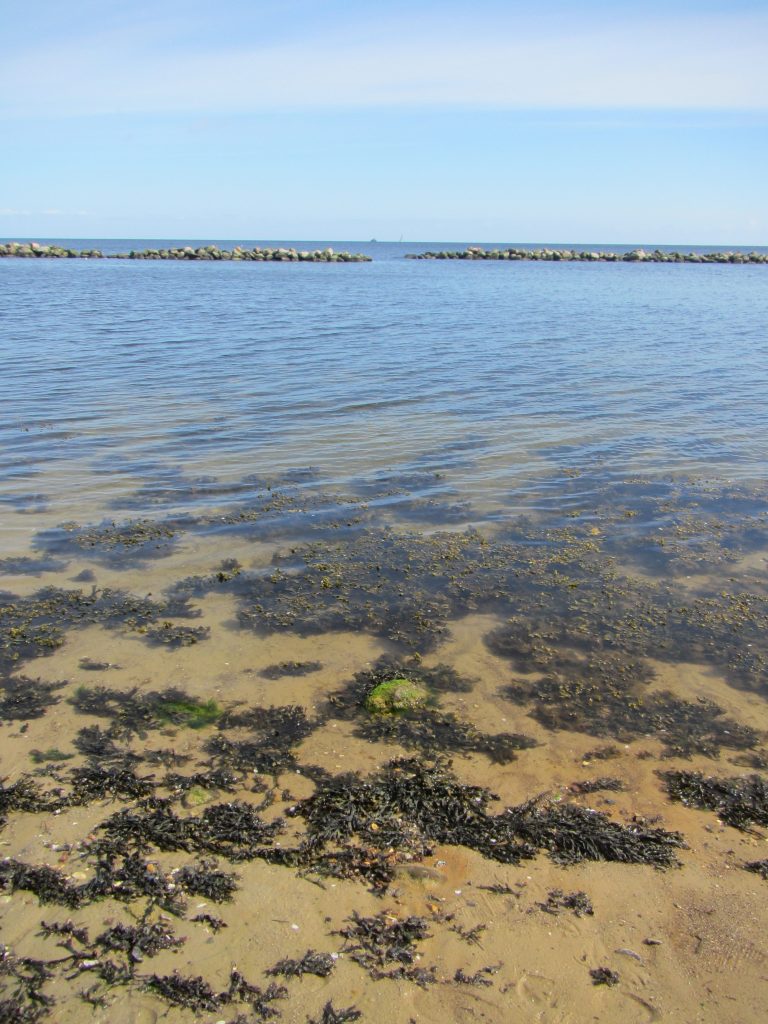
But the waves below were really cool: There were the ones that you clearly see on the picture at an angle to the coast, and then there were waves that came in perpendicular to the coast (so the wave crests were parallel to the coast) and they washed the other waves on the beach and back into the sea. I should really upload the movie…
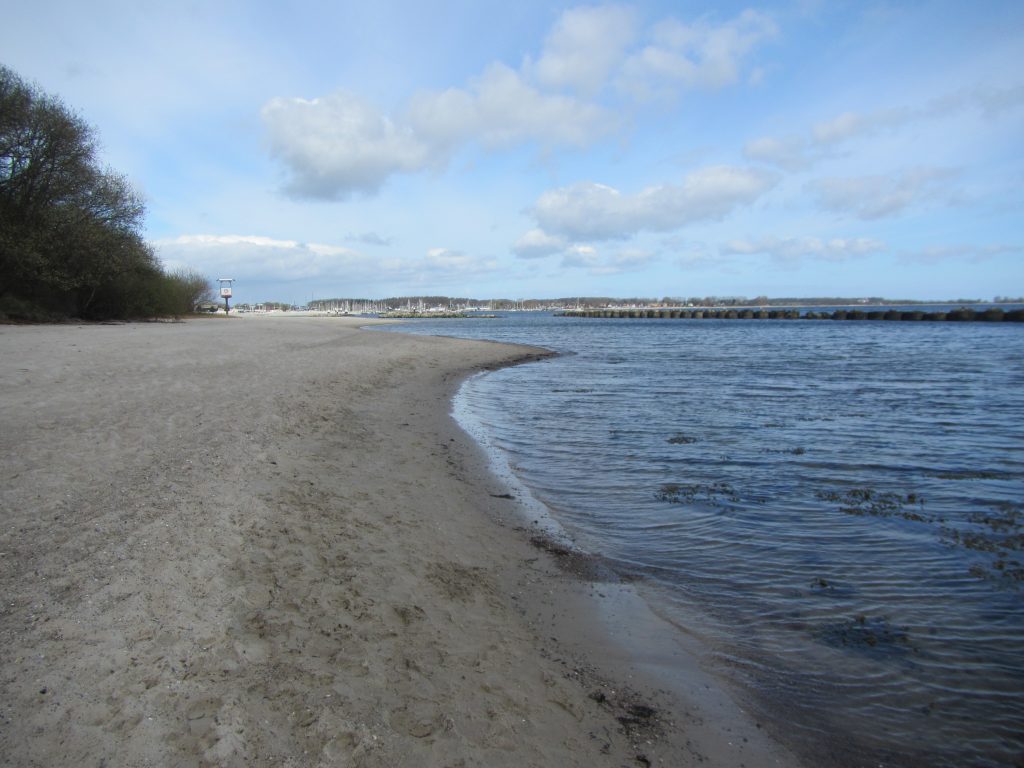
So those waves above caused ripples in the sand which are parallel to the water line, even though in the pictures the other wave field is a lot more visible!
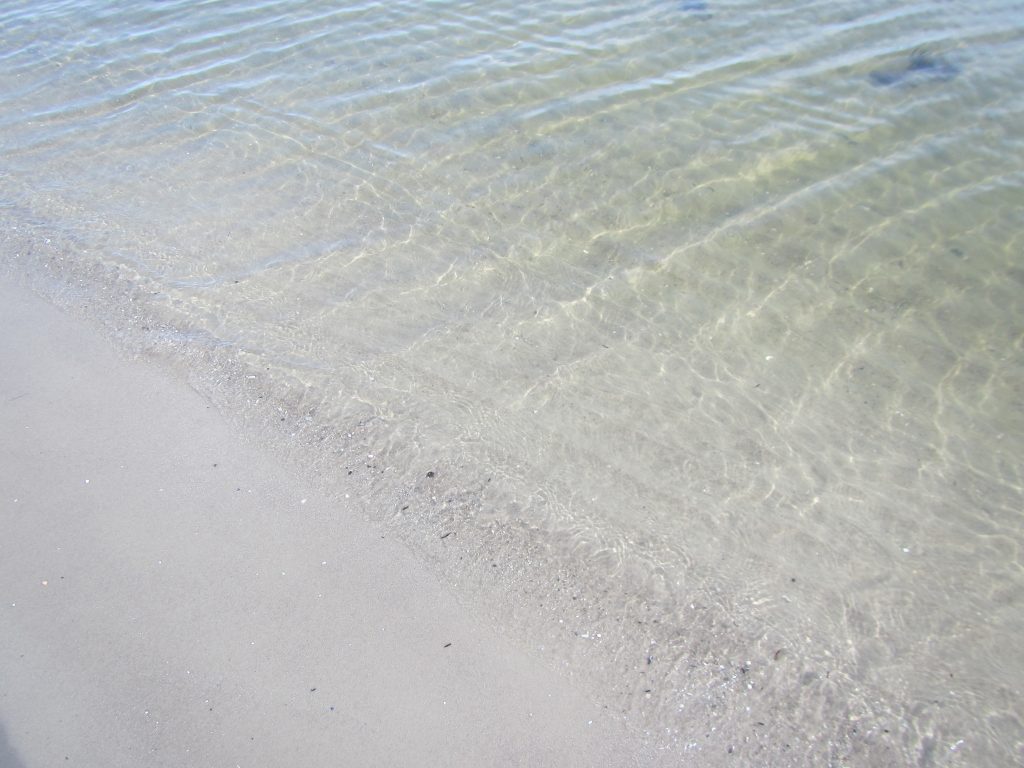
See?
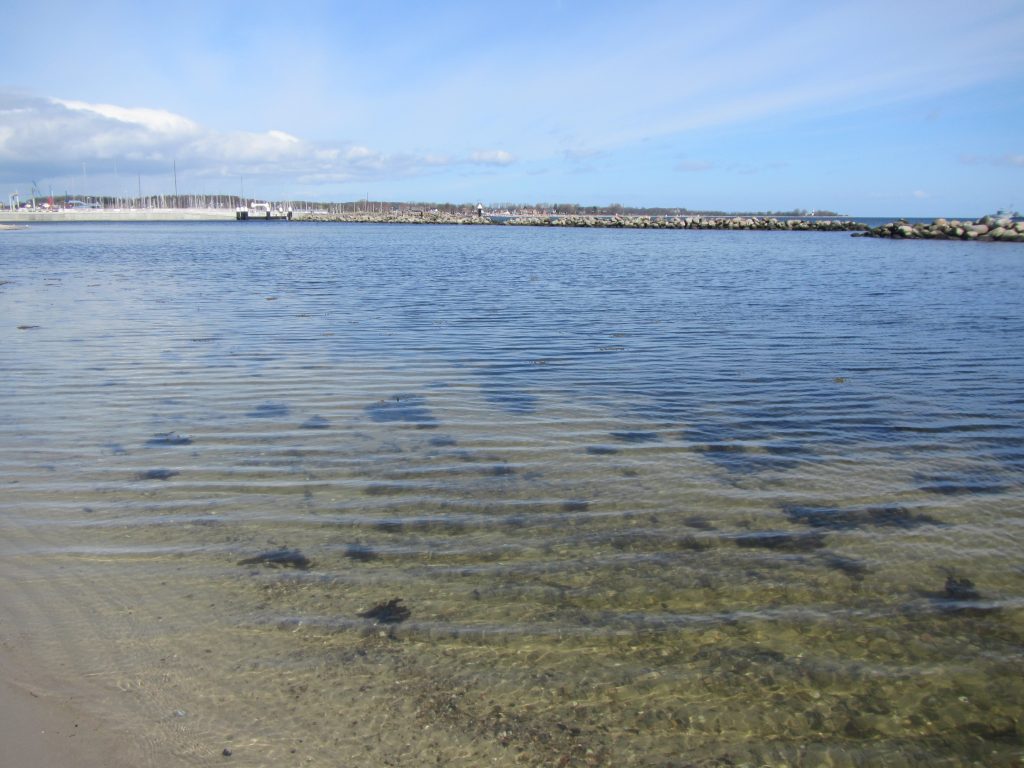
We ended up in Schilksee and had a look around the marina. Apart from the typical wind / no wind resulting in waves / no waves, we saw……
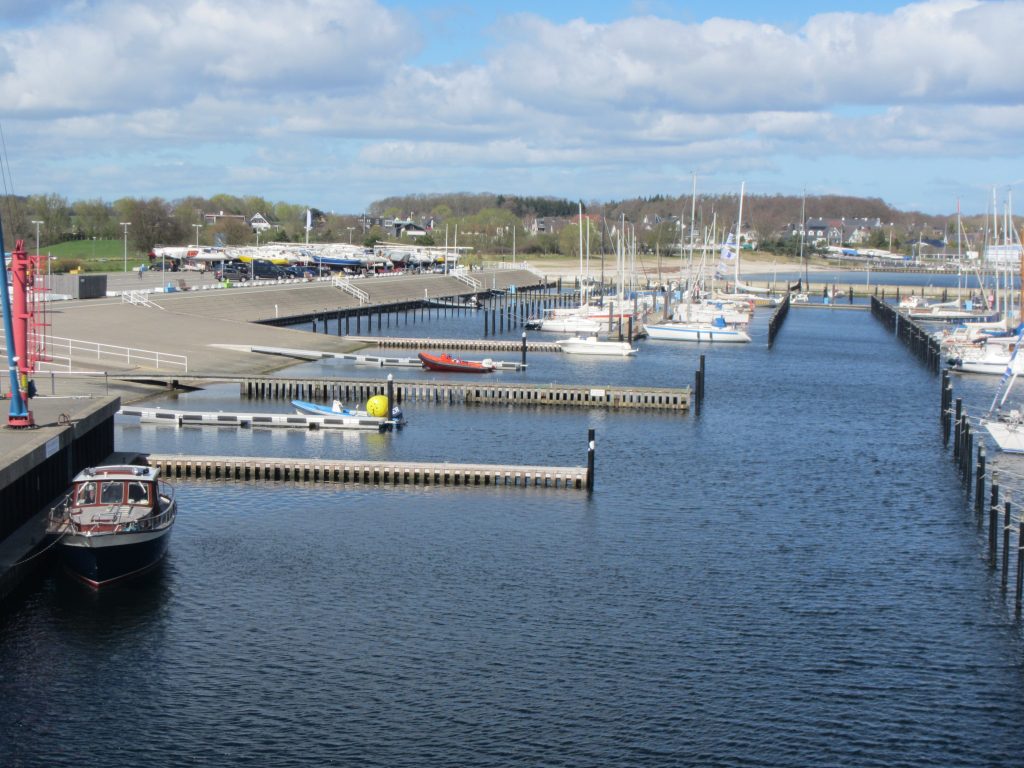
…this! Pretty cool, huh?
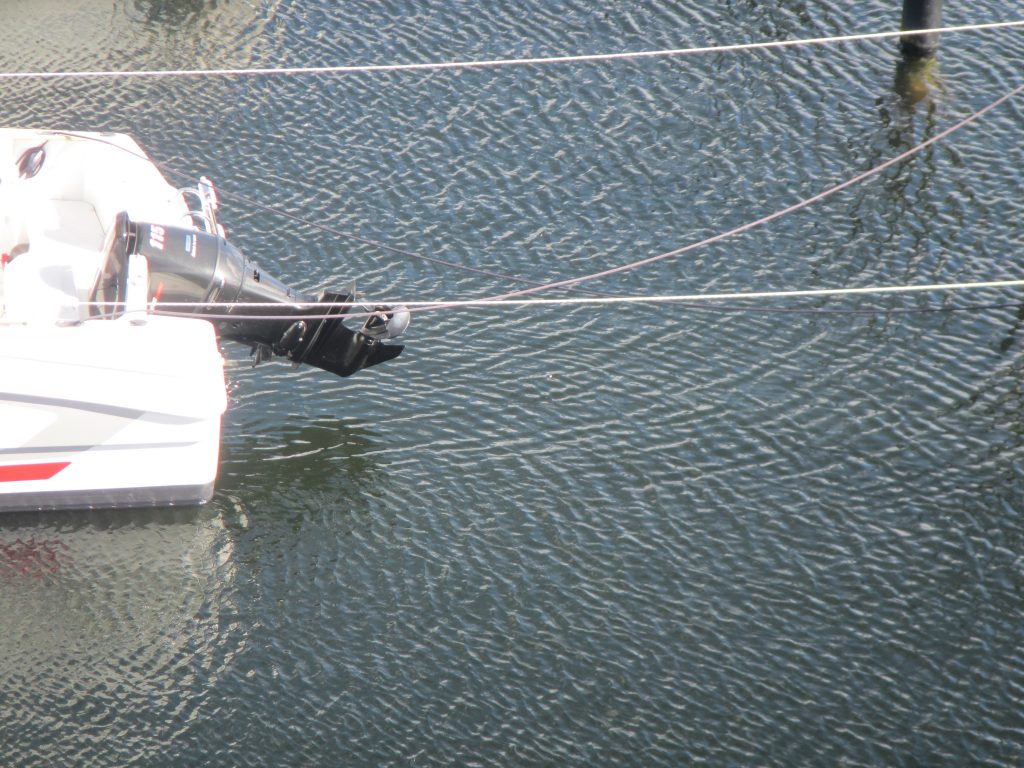
And again:
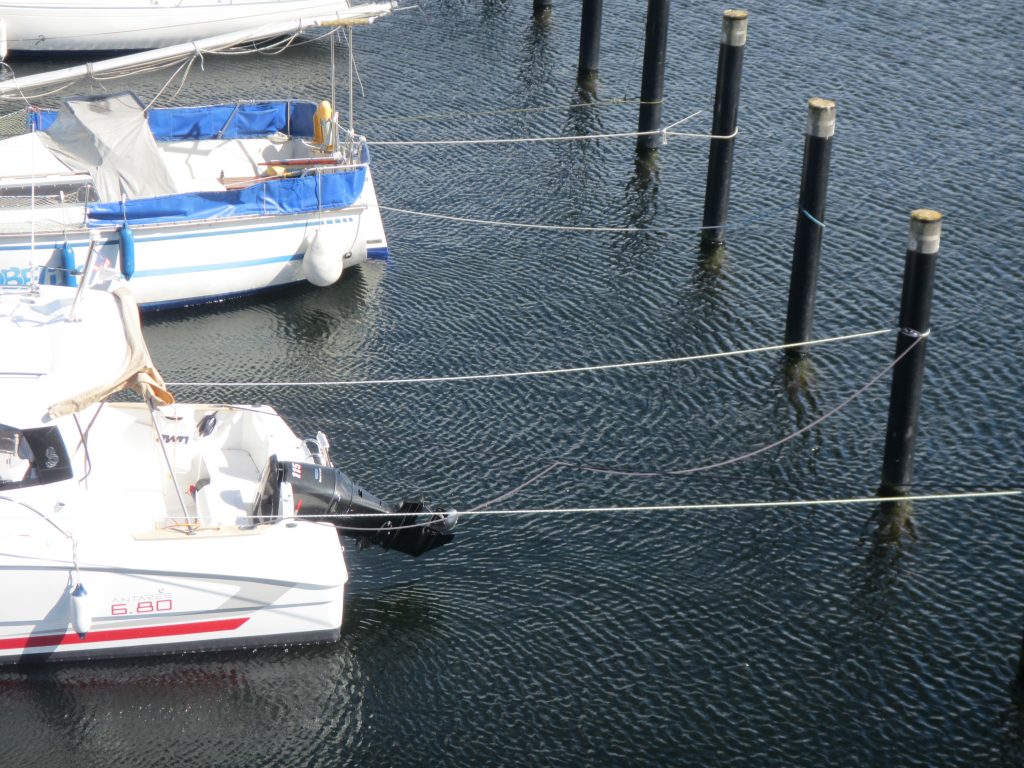
One last look at the coast near Bülk.
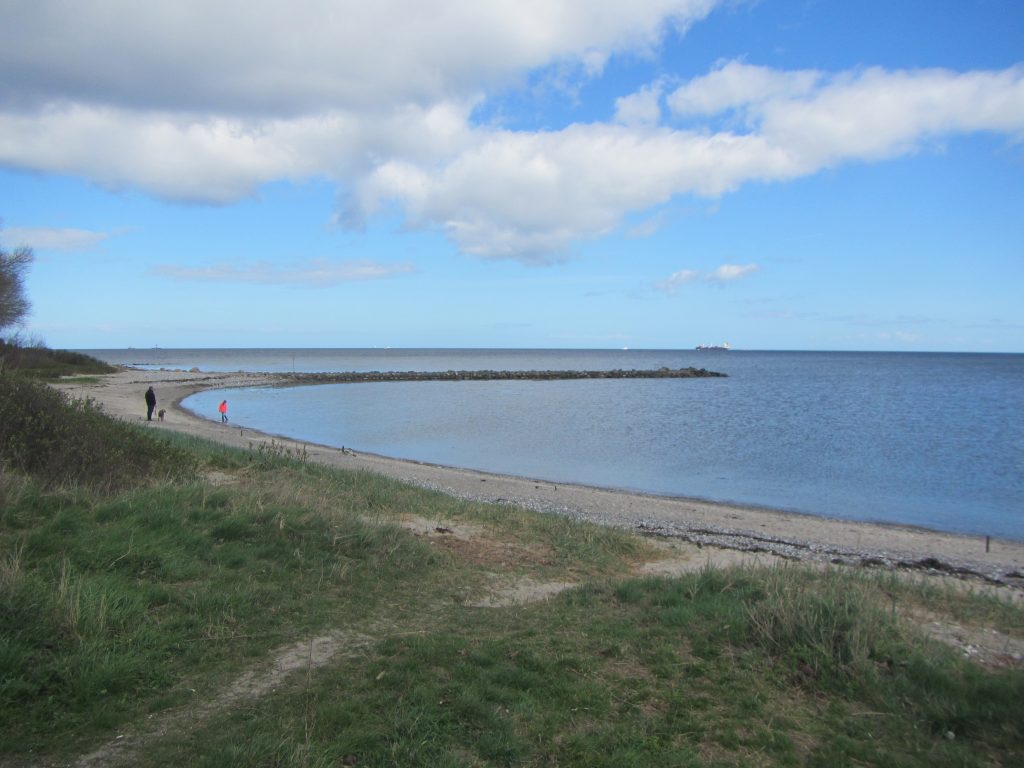
At this point, only one of us still felt like exploring every nook and cranny…
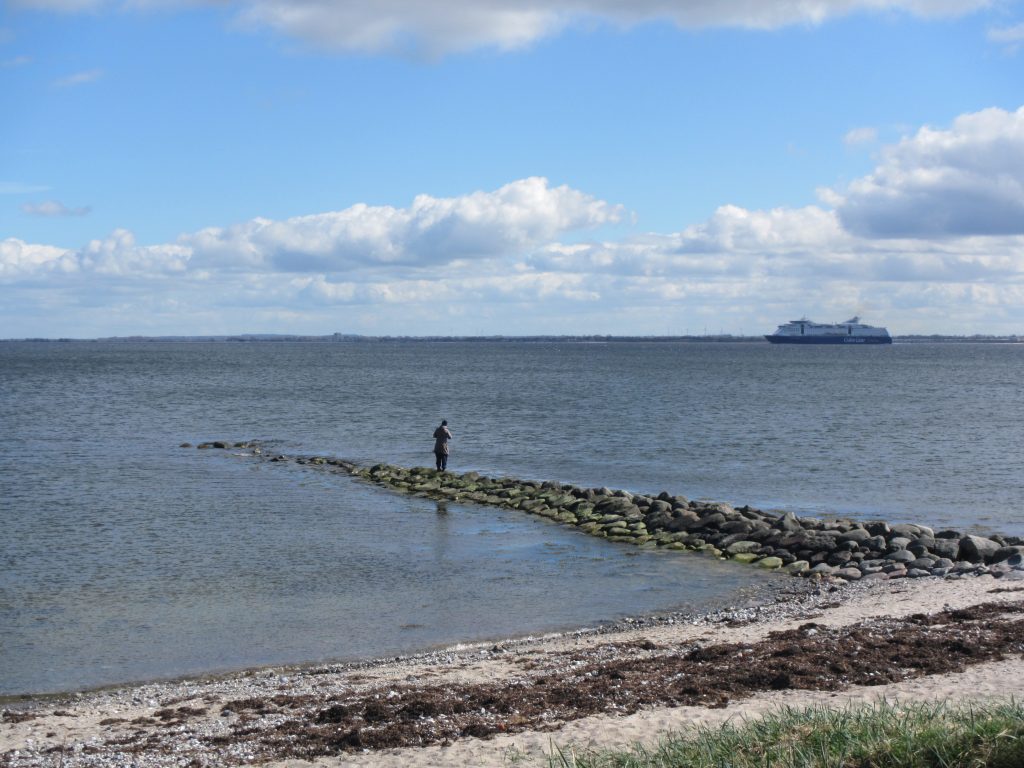
Even though there were some pretty nice wave fields, but we could see them from our vantage point without doing an extra step ;-)
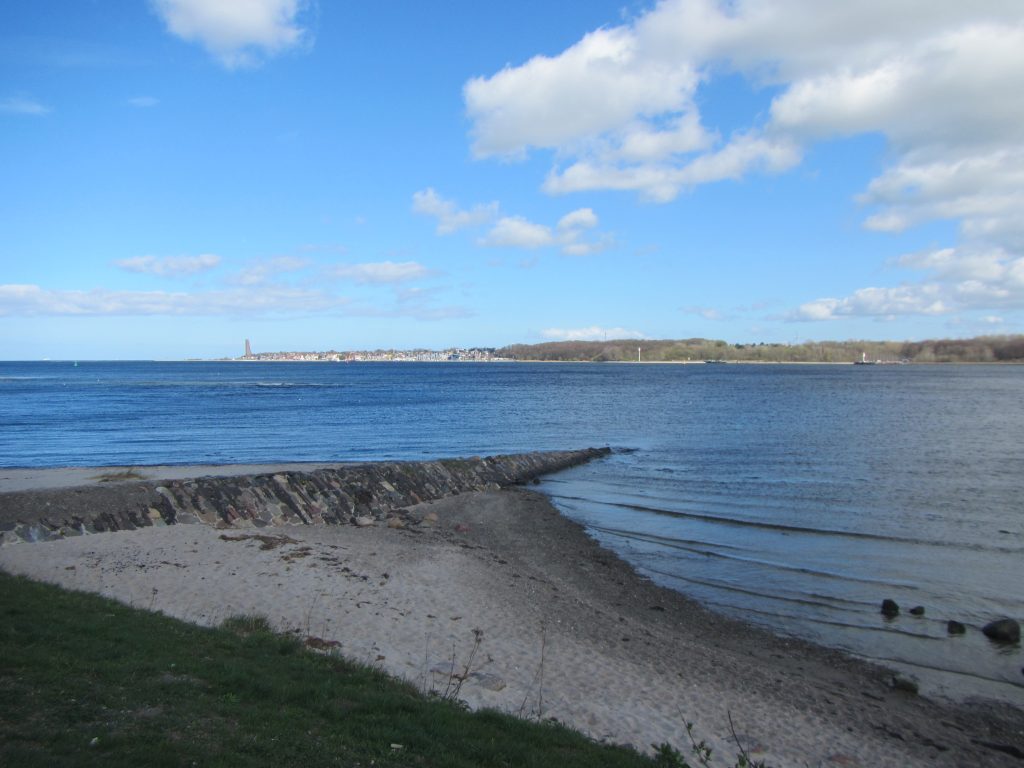
Actually, there were a couple of cool features on the beach still. What’s up with those little bays?!
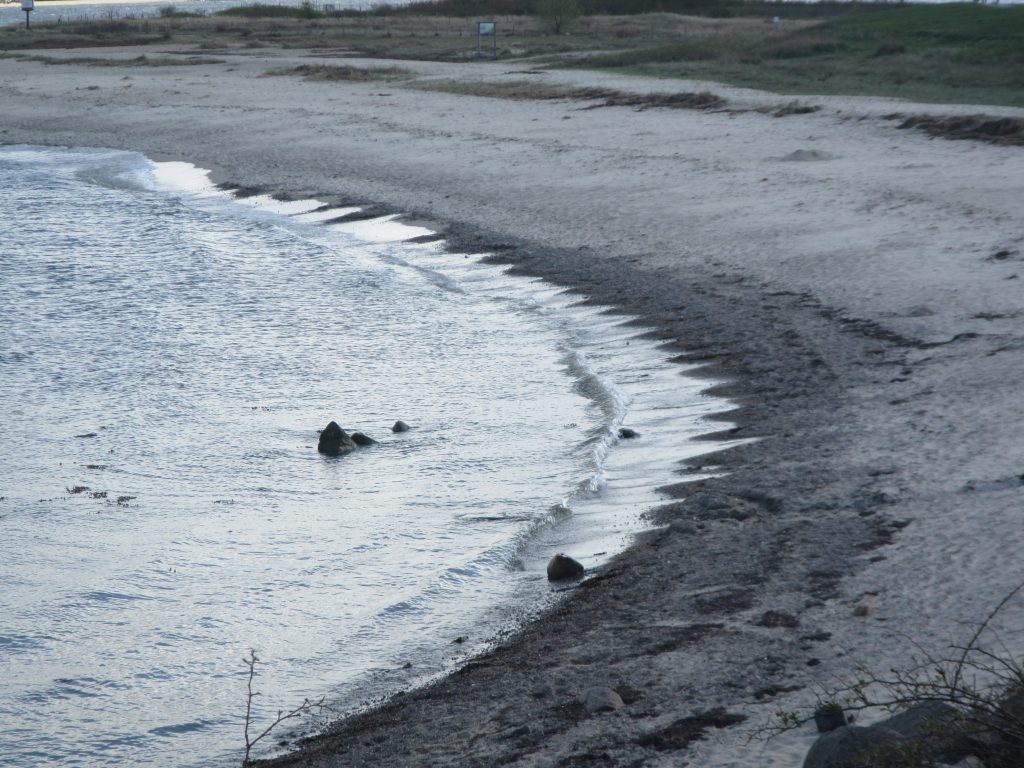
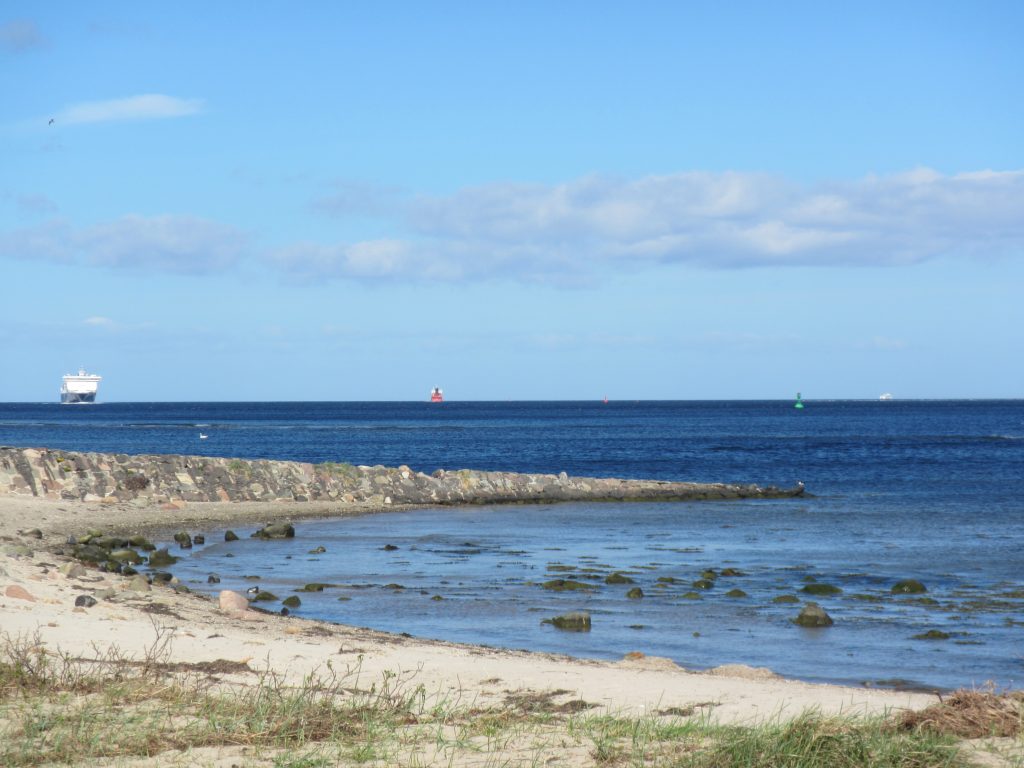
We ended the day with trying this very cool contraption to measure the coast with. It was actually a lot of fun!
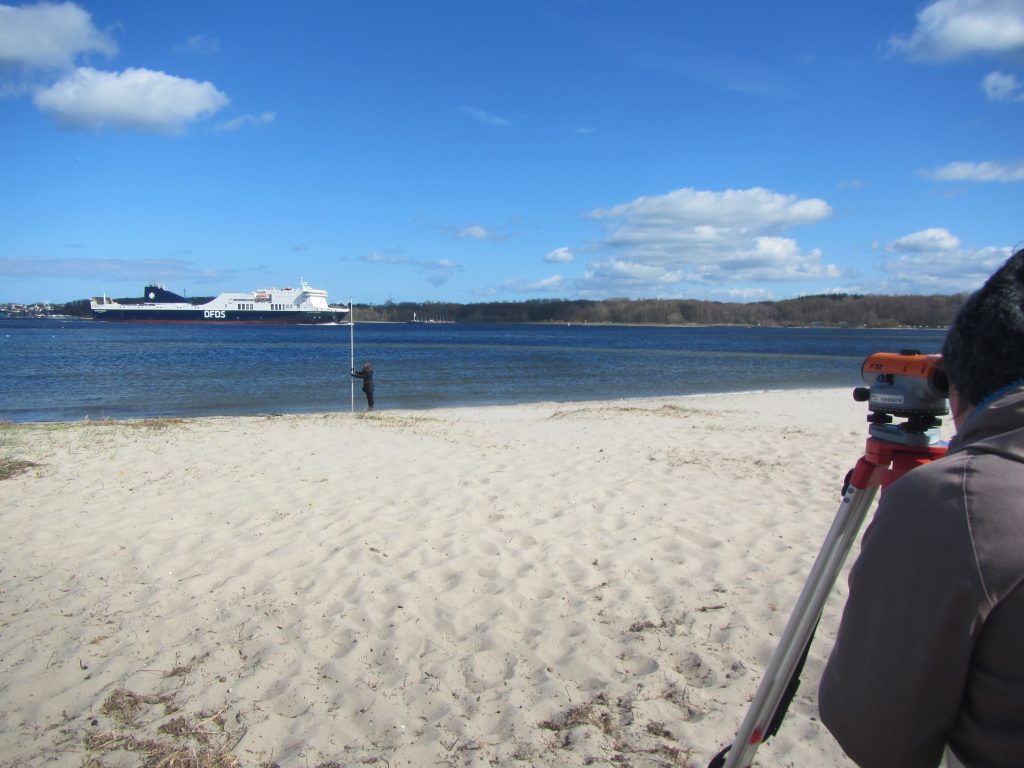
And you wouldn’t believe how much work it was to hold that ruler thingy in the wind!
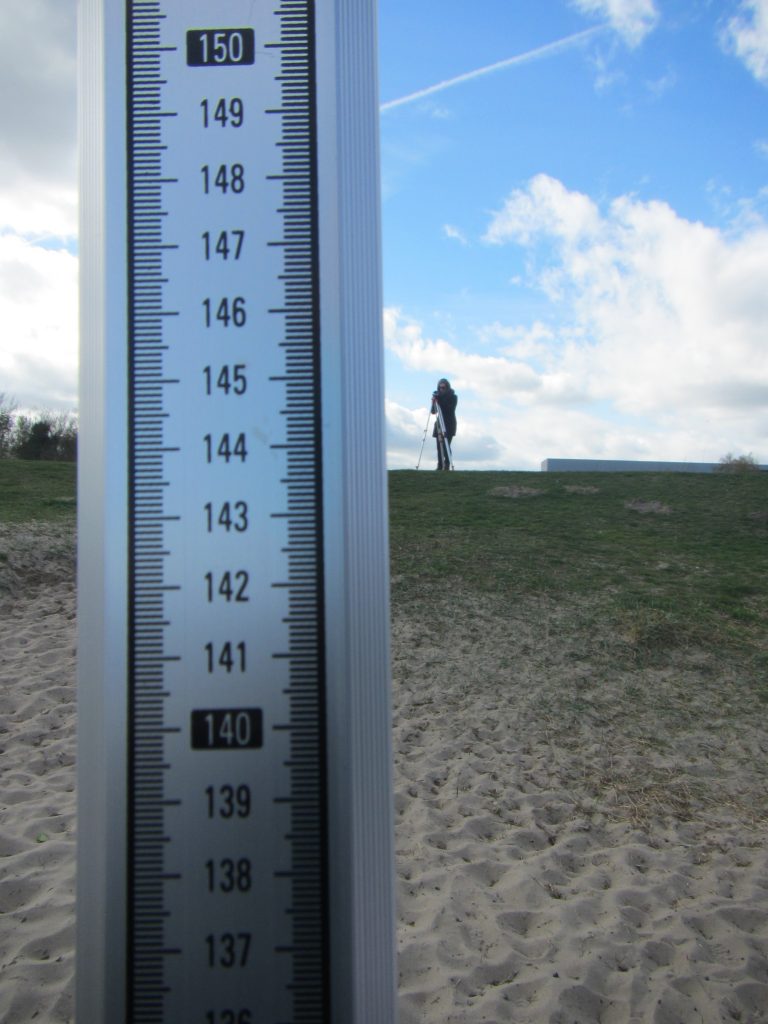
So yeah, that’s what we did. And how was your day in the office? :-)
Expedition learning | Mirjam S. Glessmer says:
[…] several groups, working on different topics, and mine (unsurprisingly) worked on waves. You can see here what kind of stuff we observed when first testing the stretch of coastline we wanted to do our […]